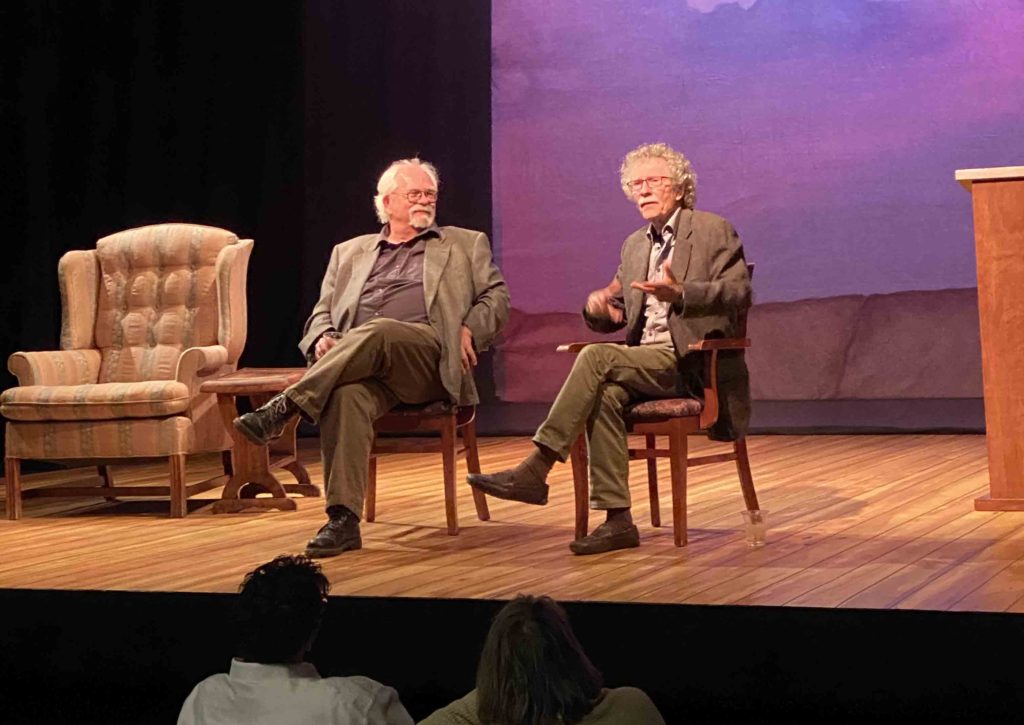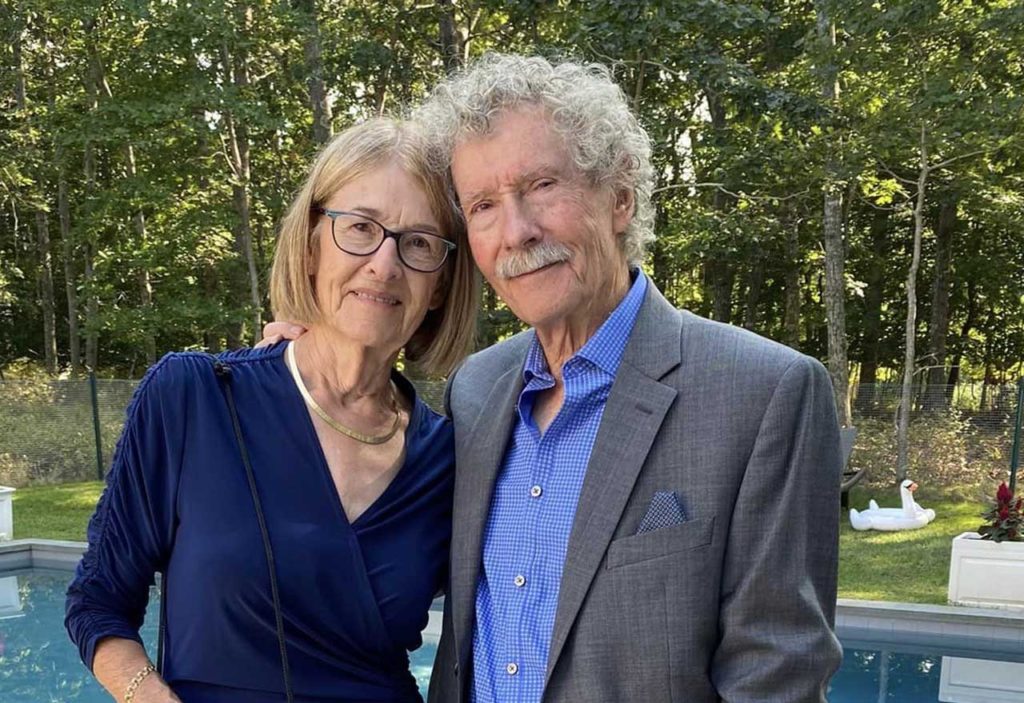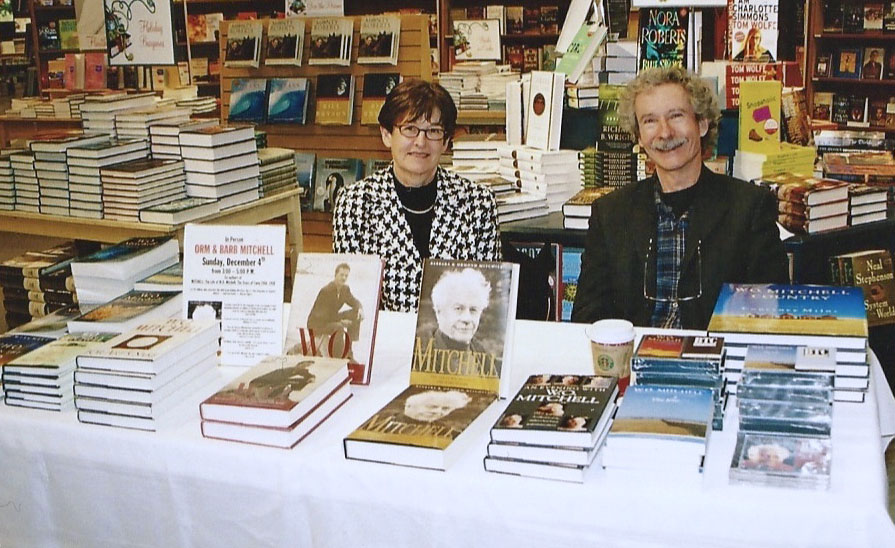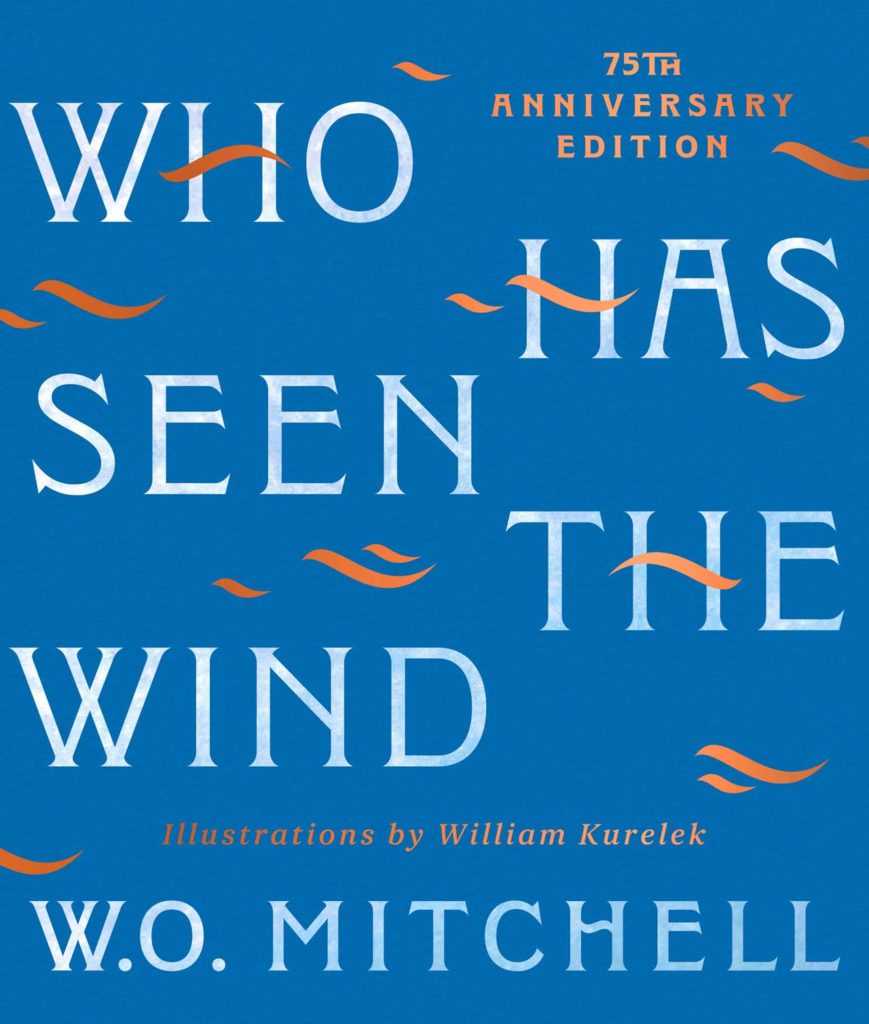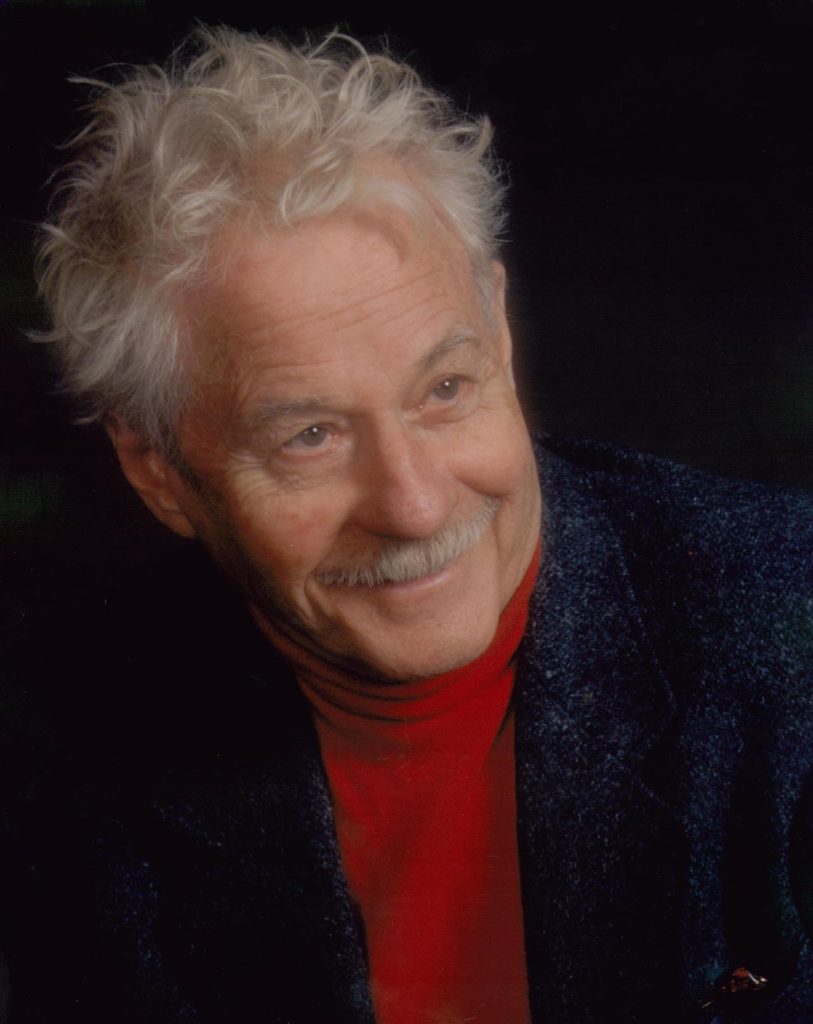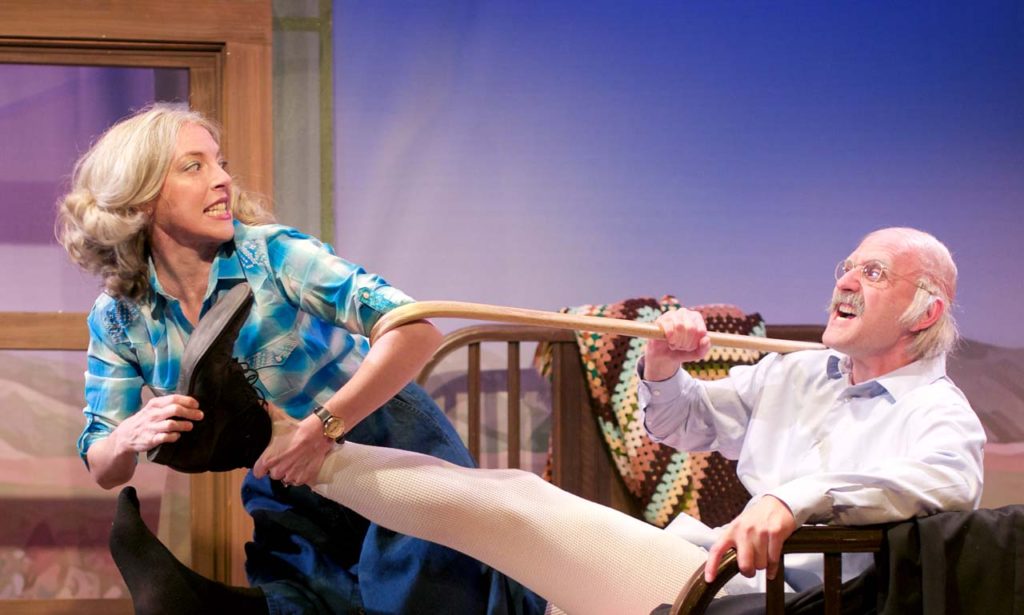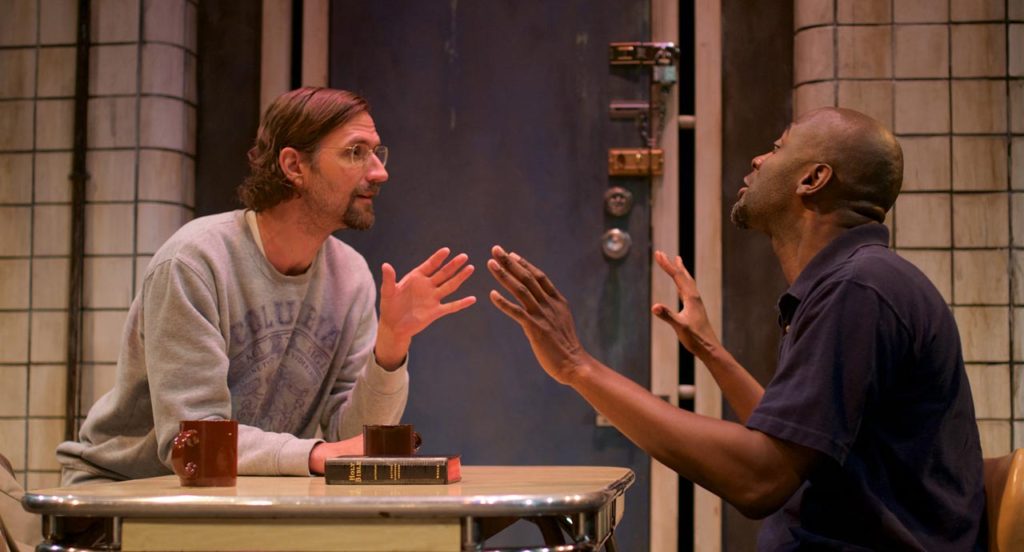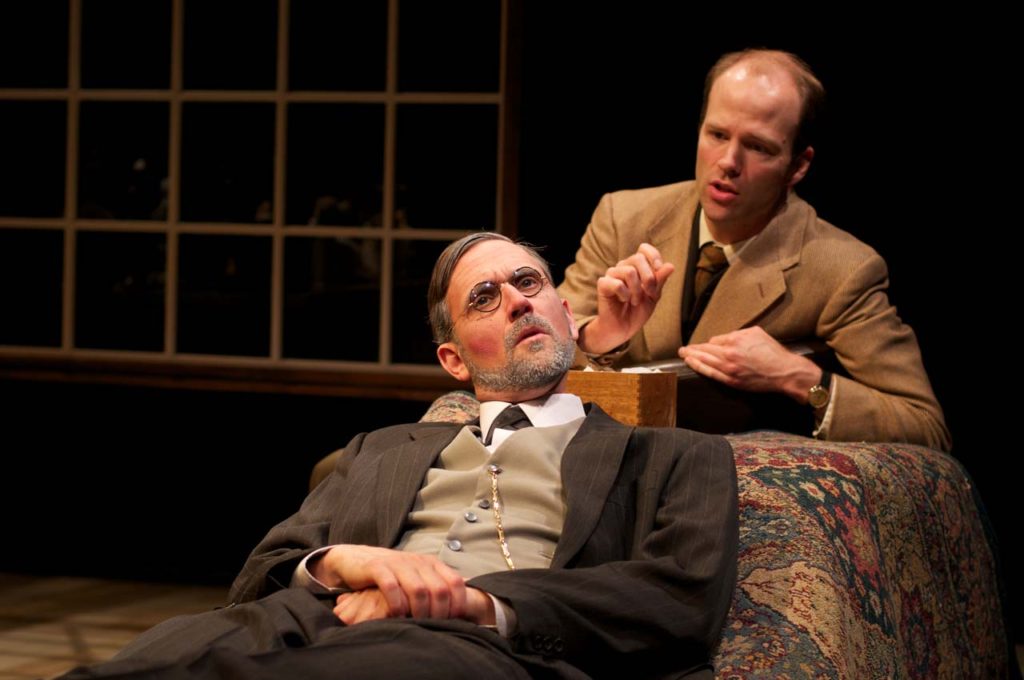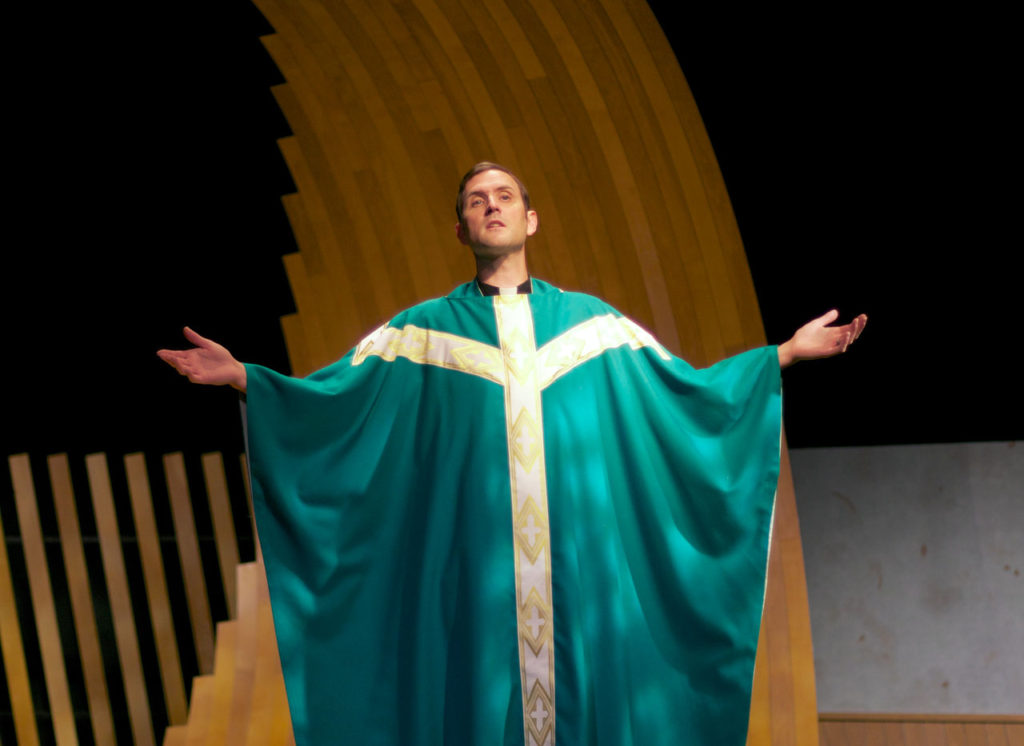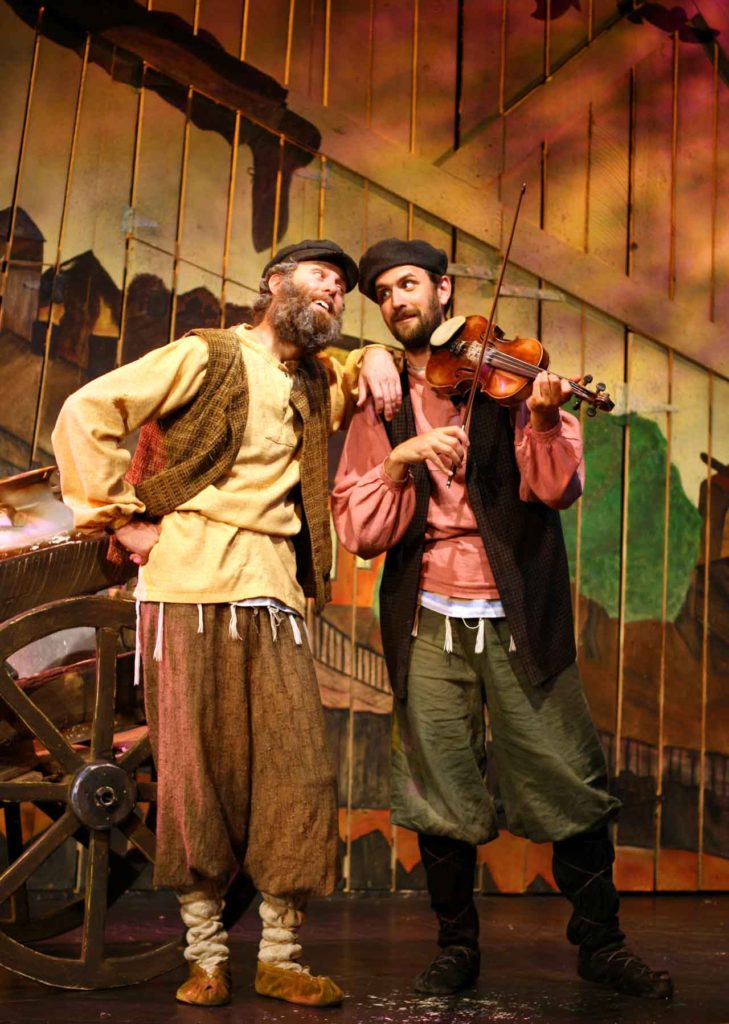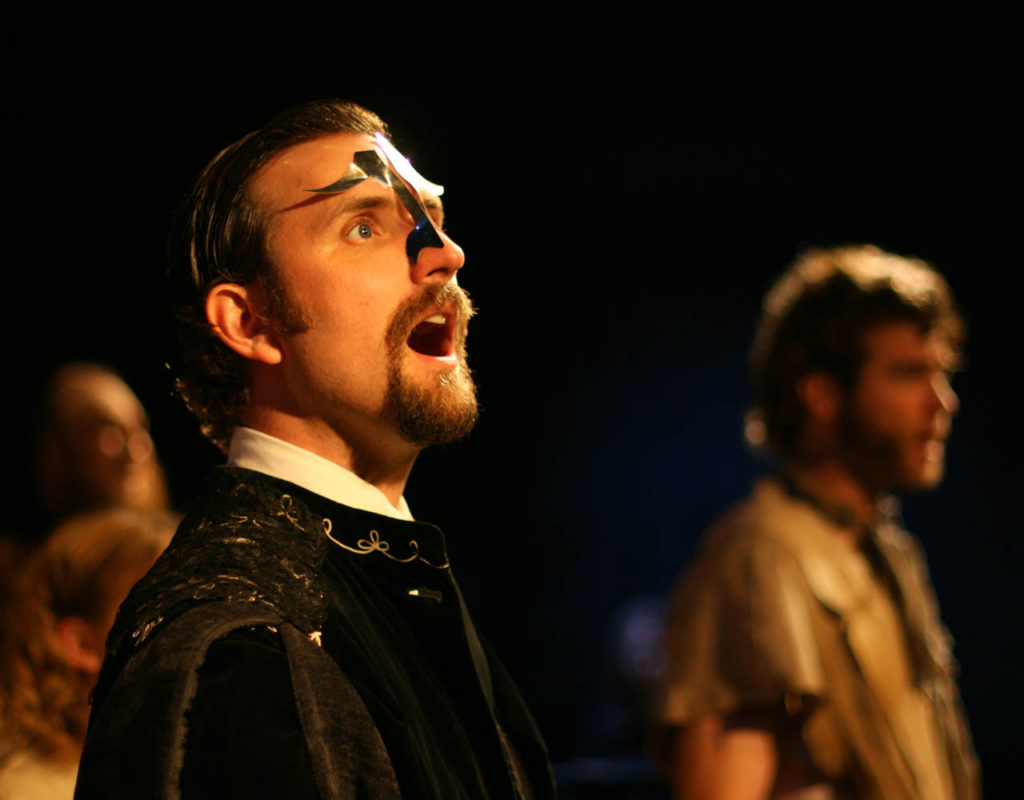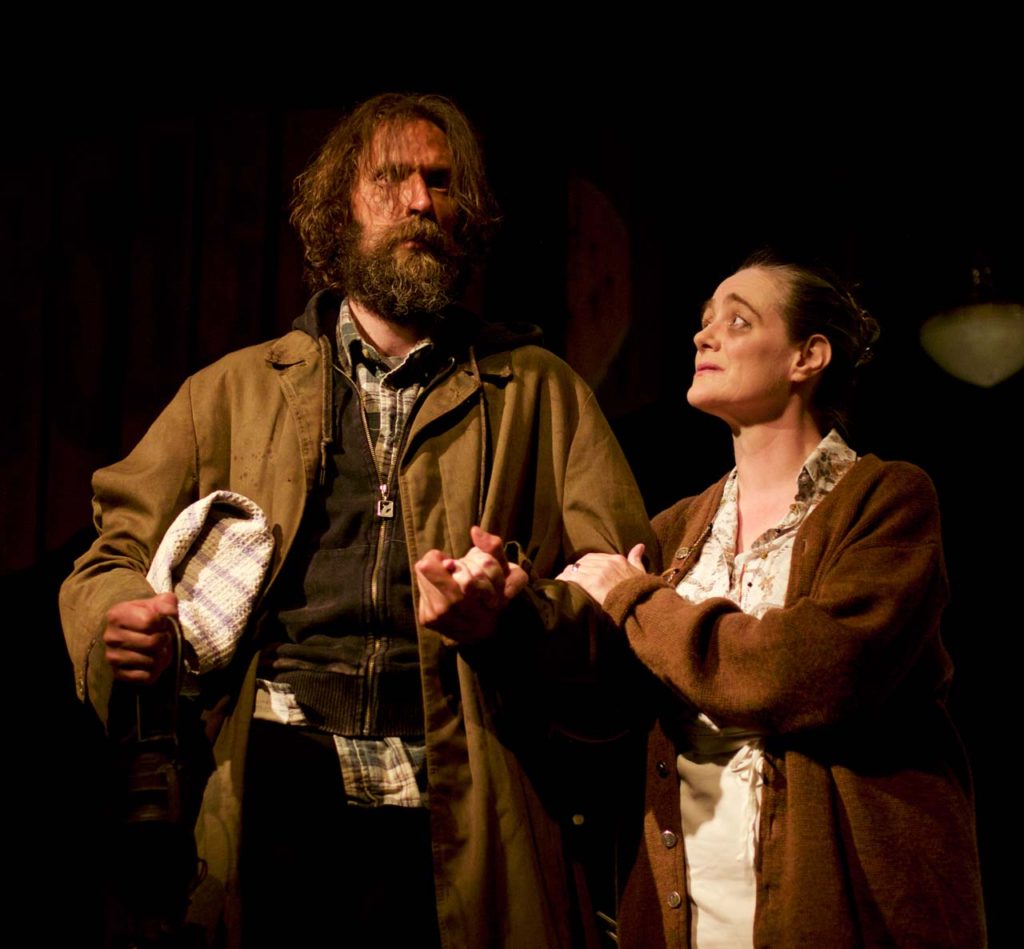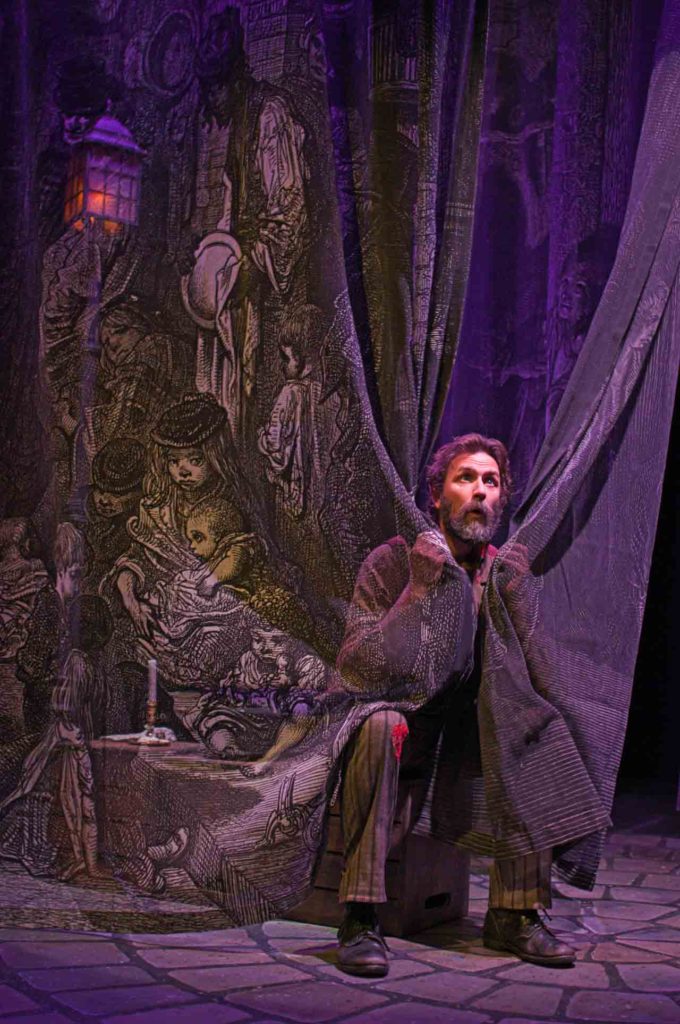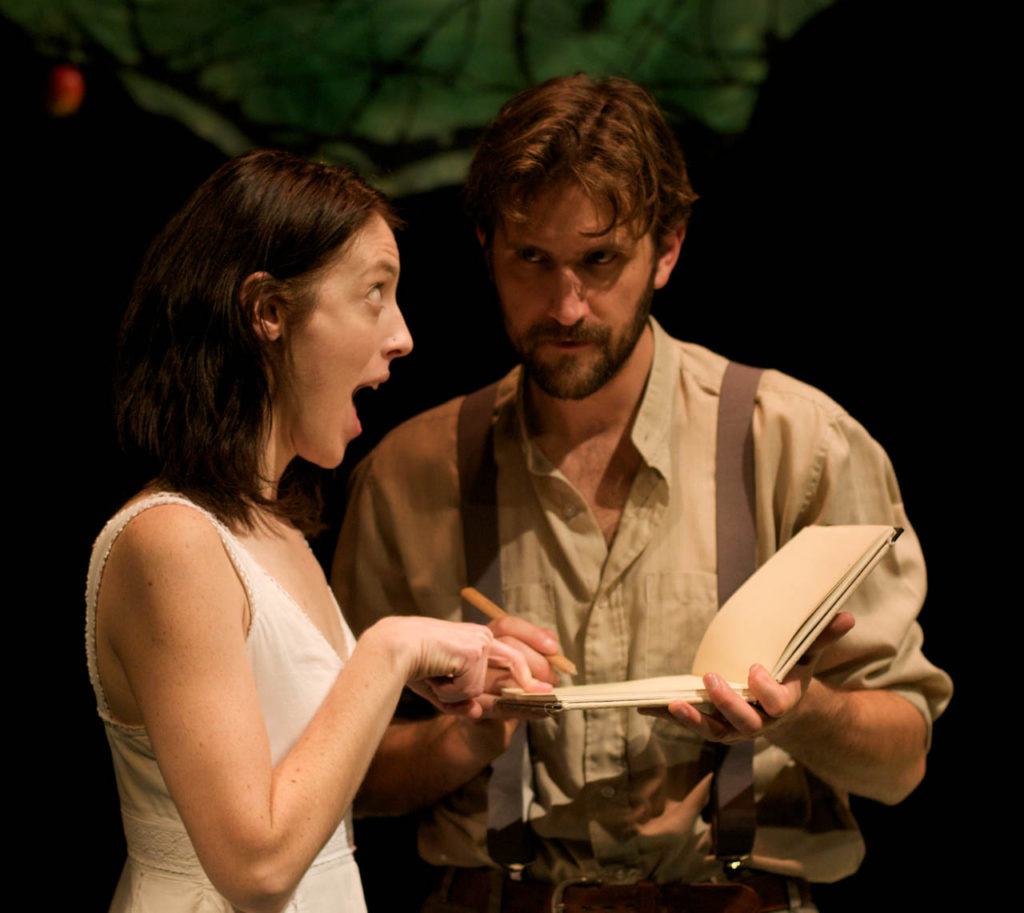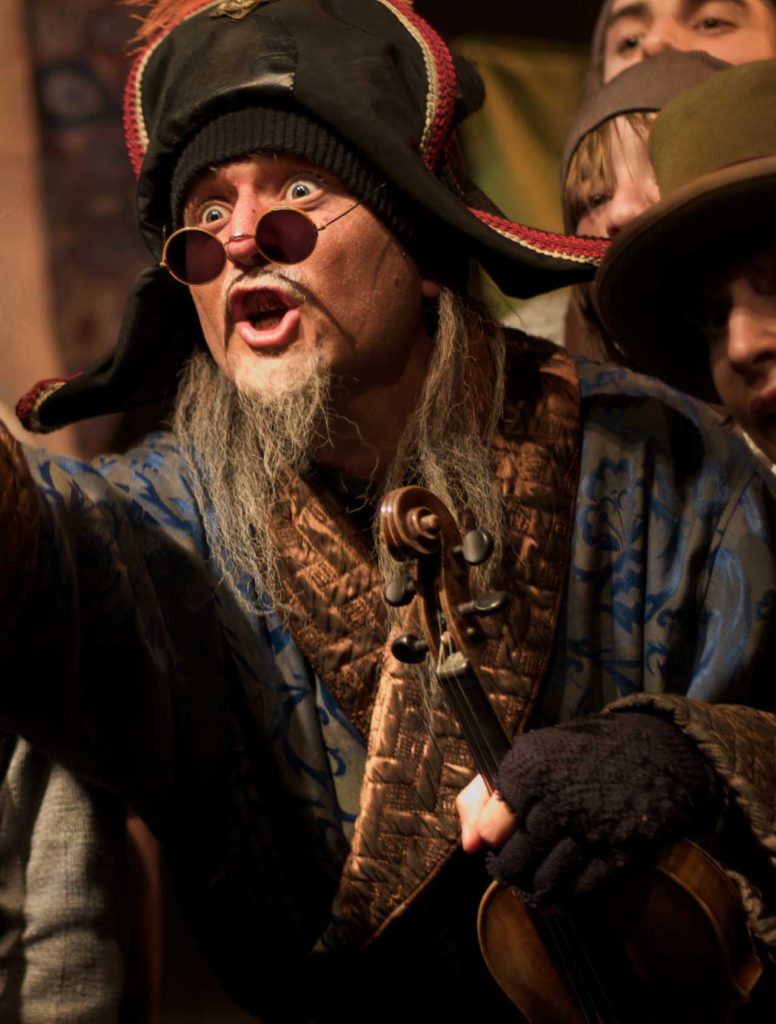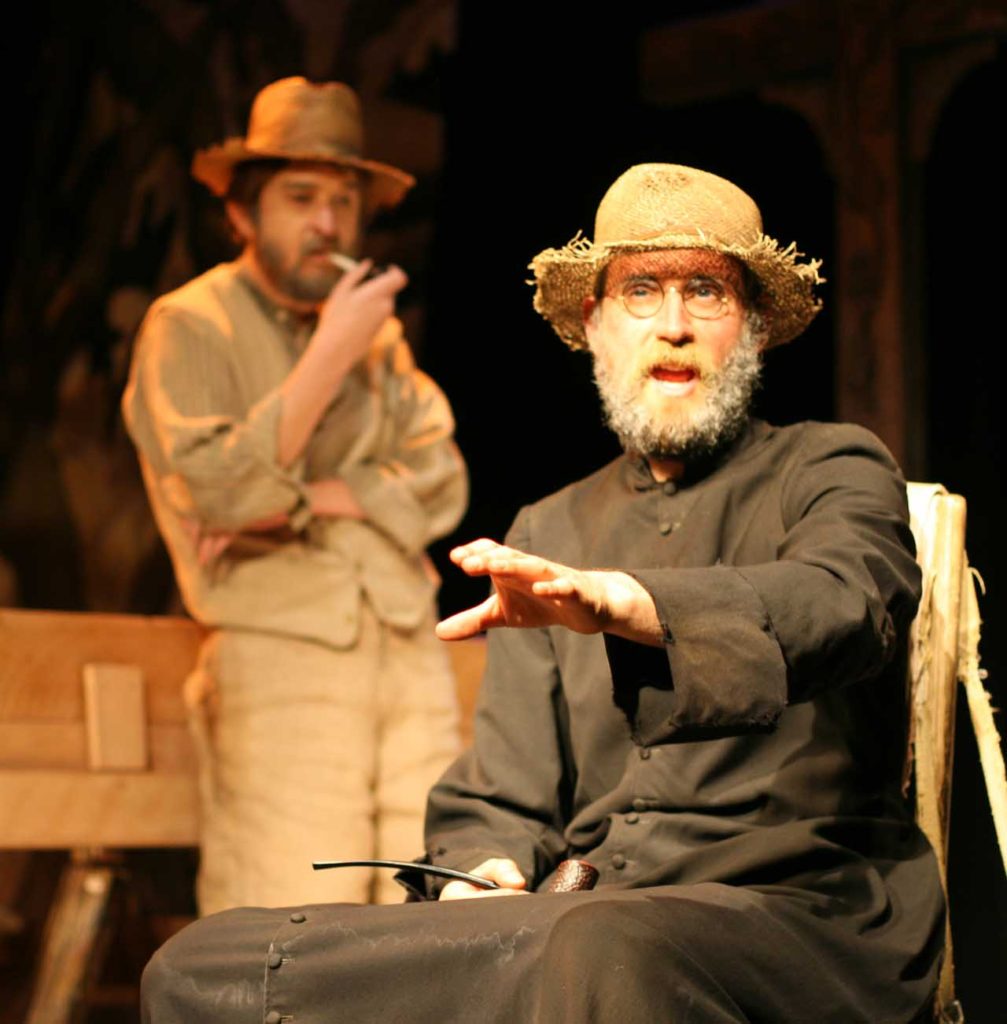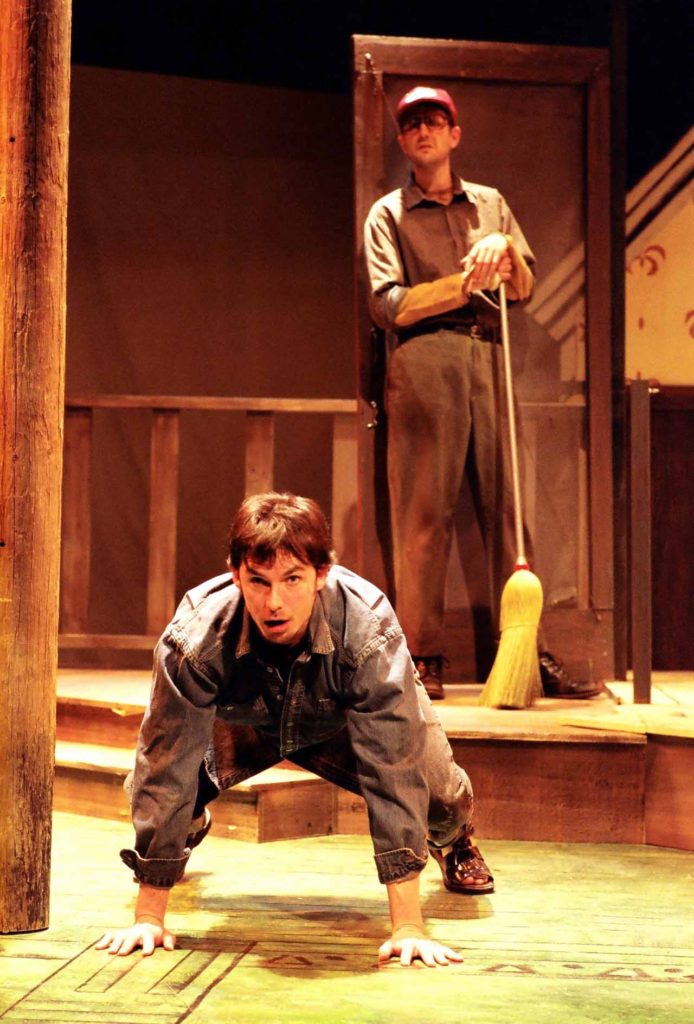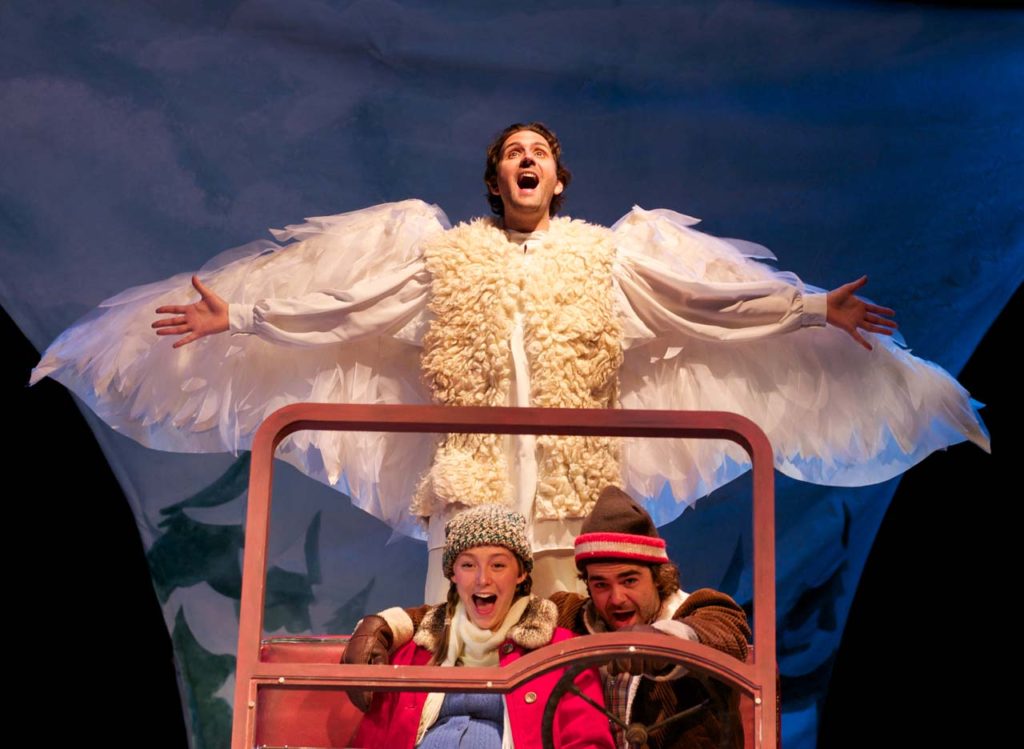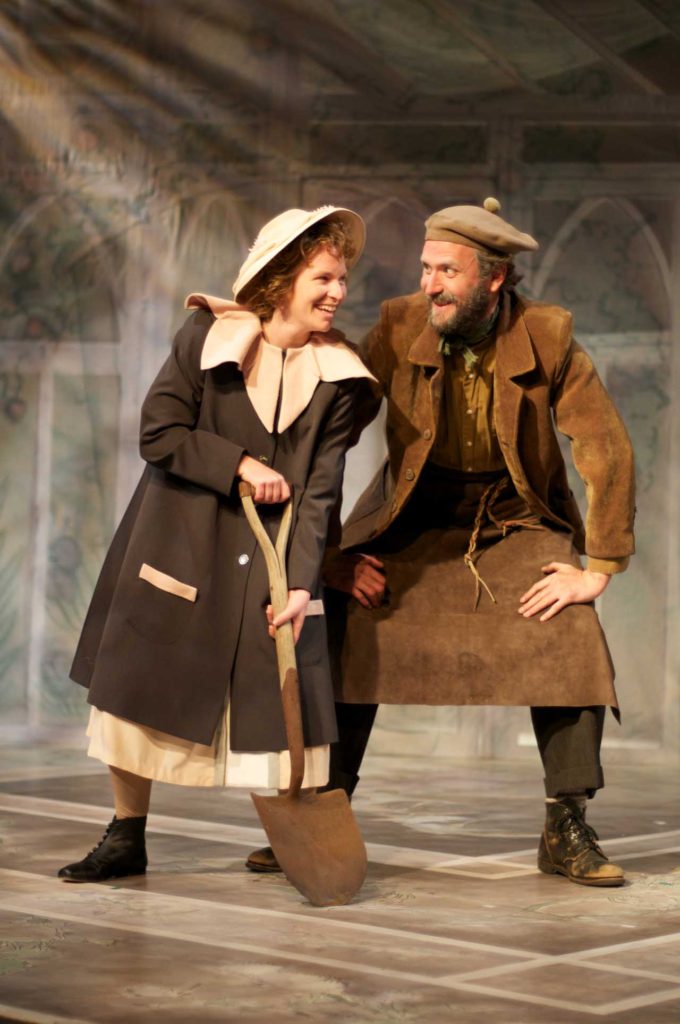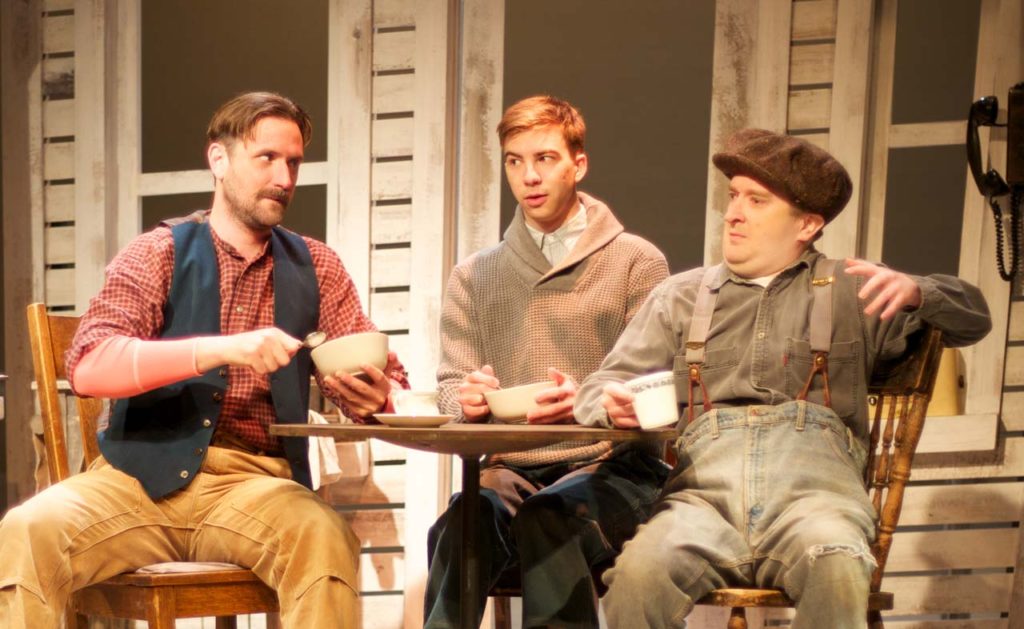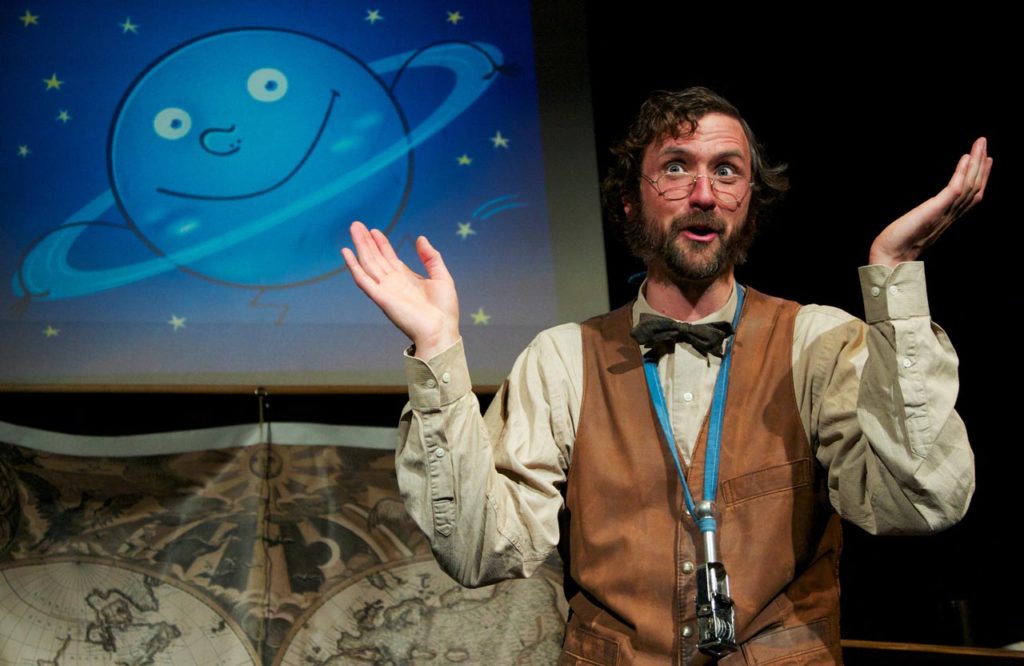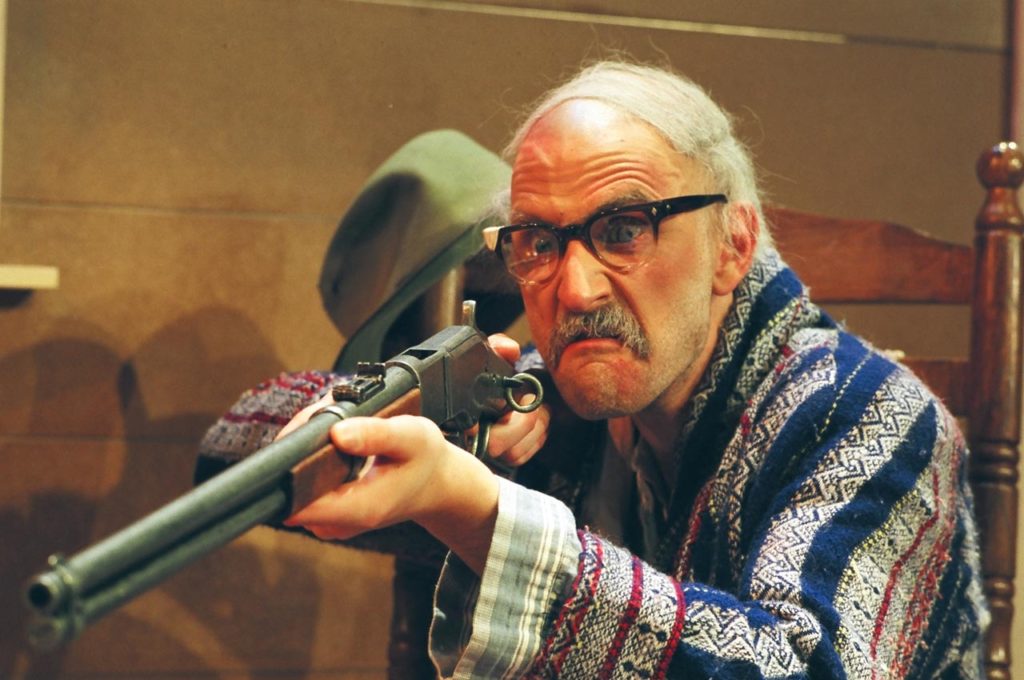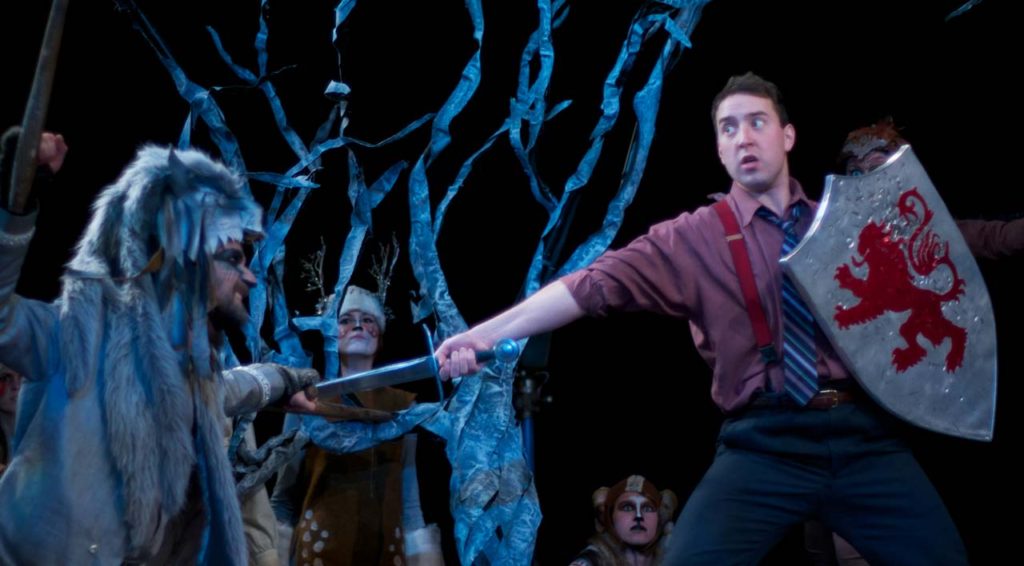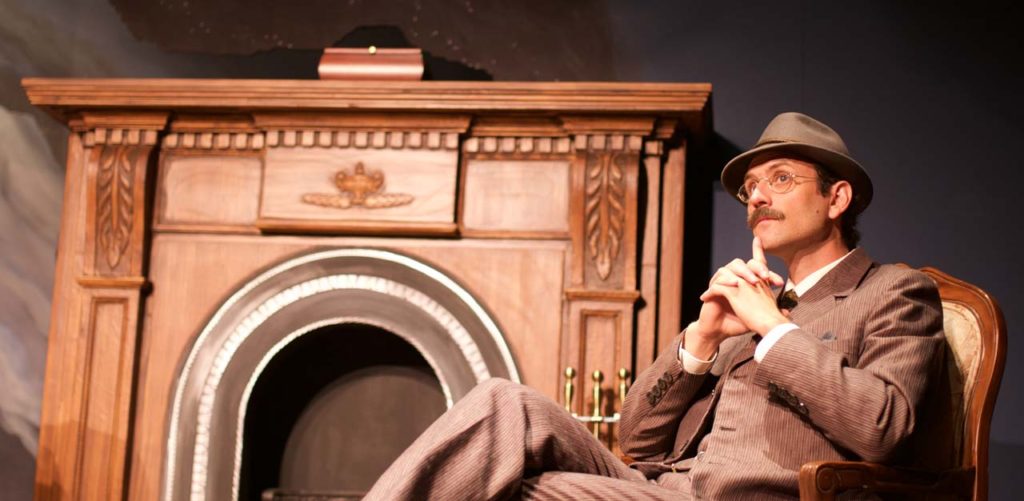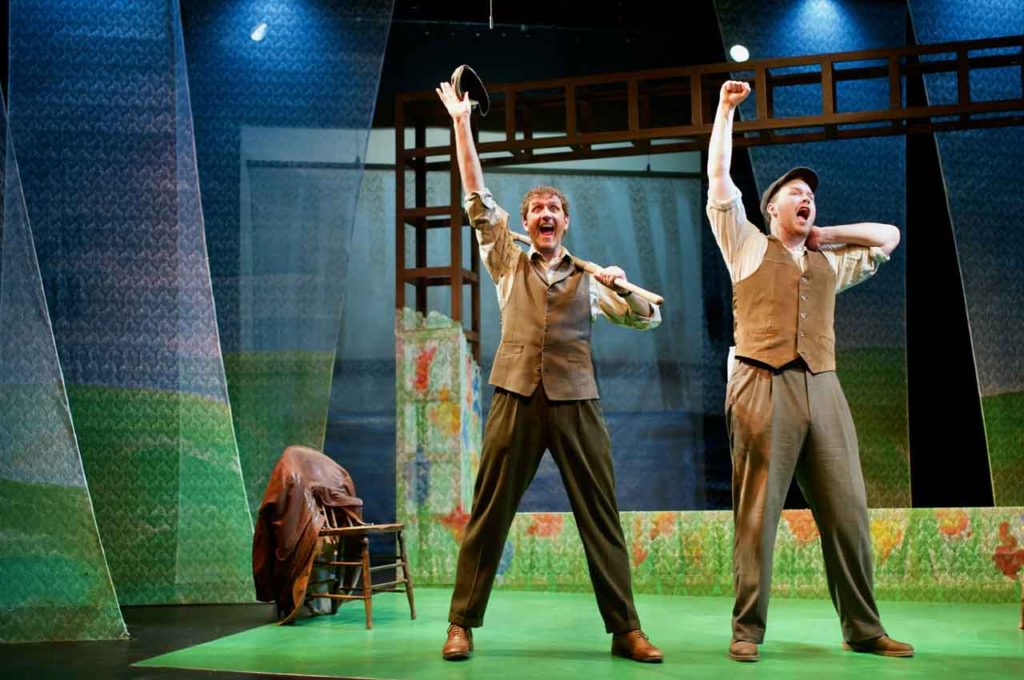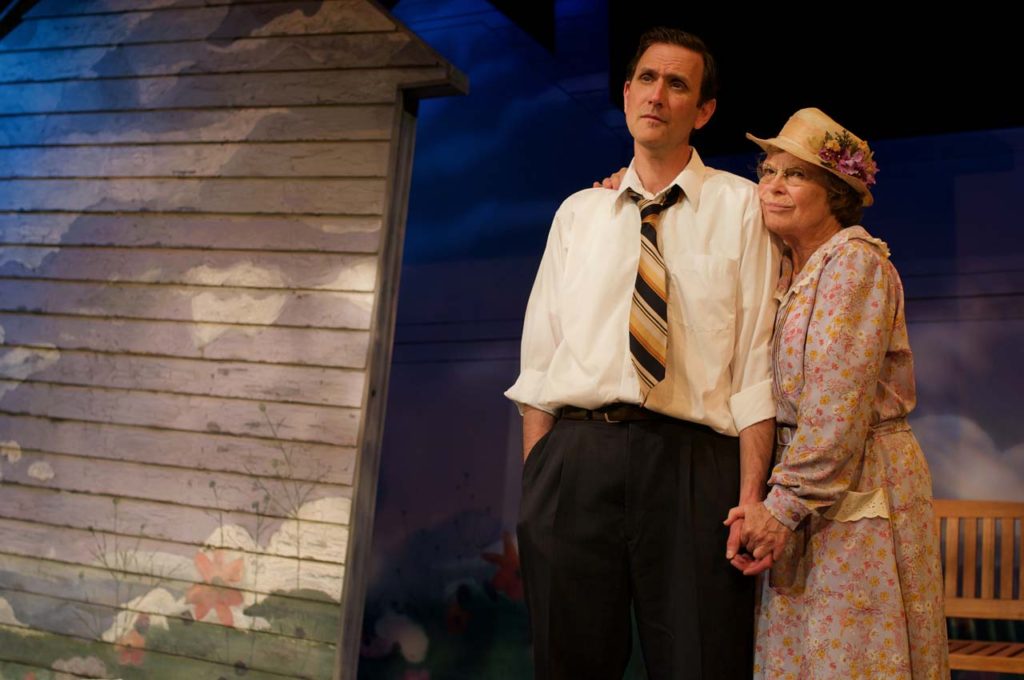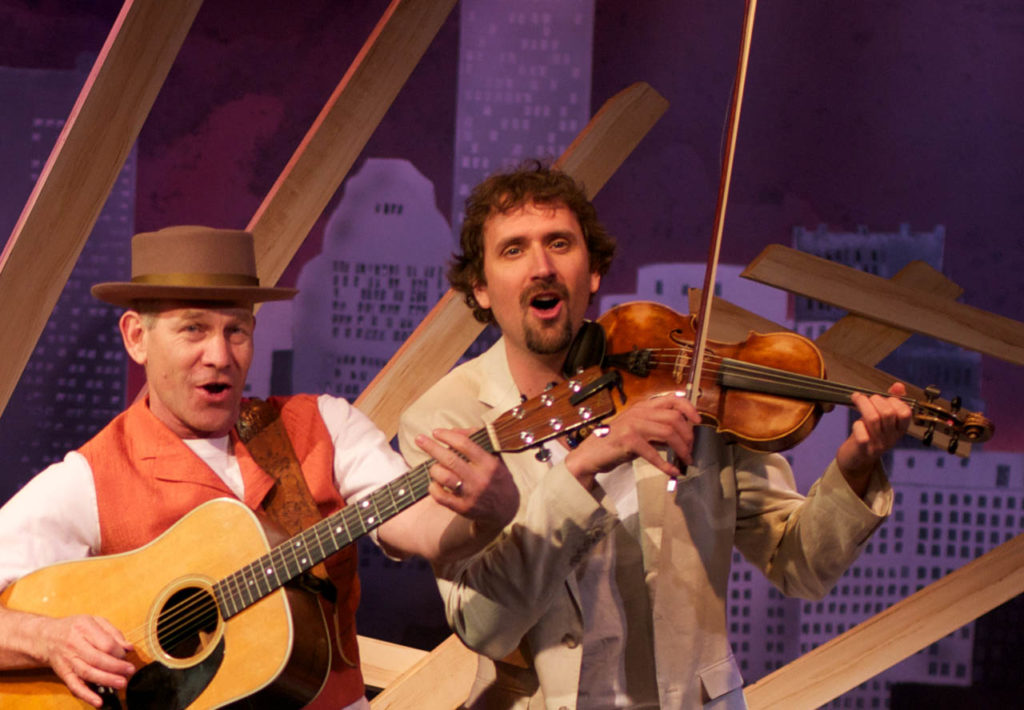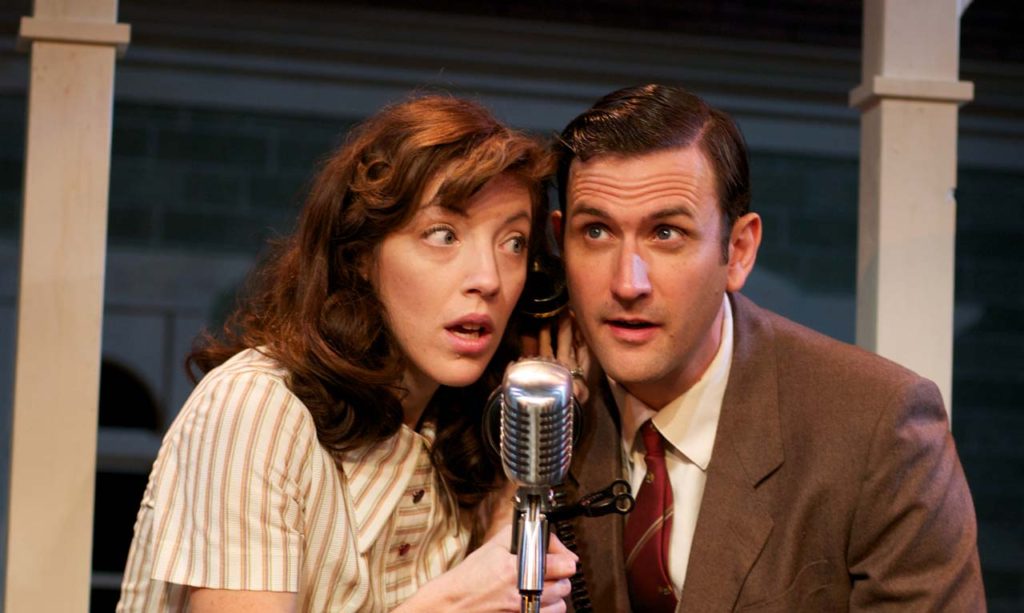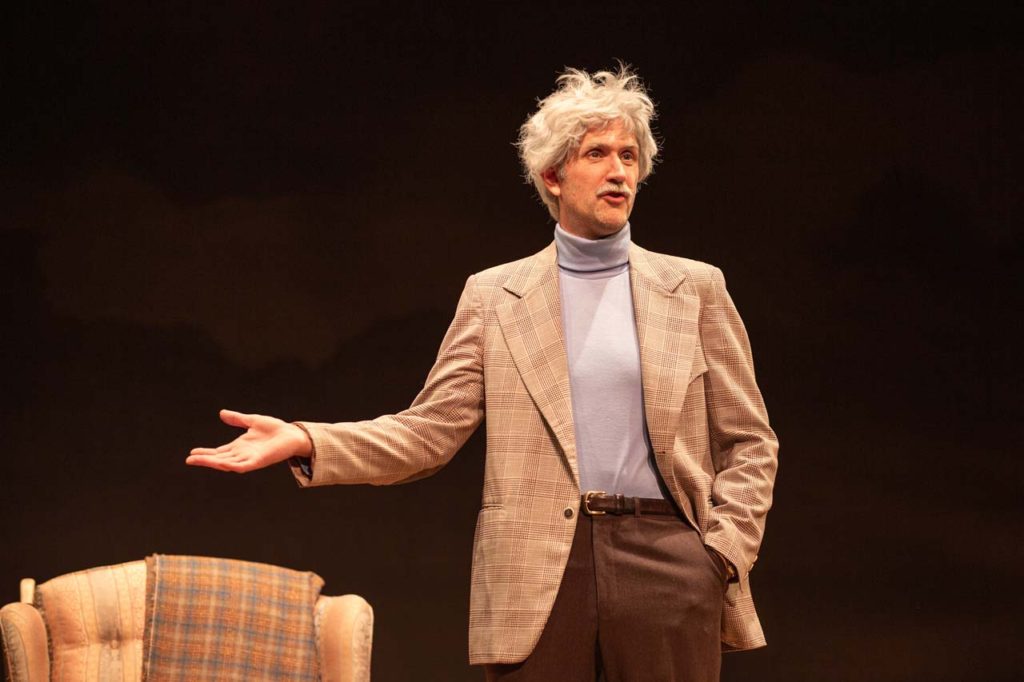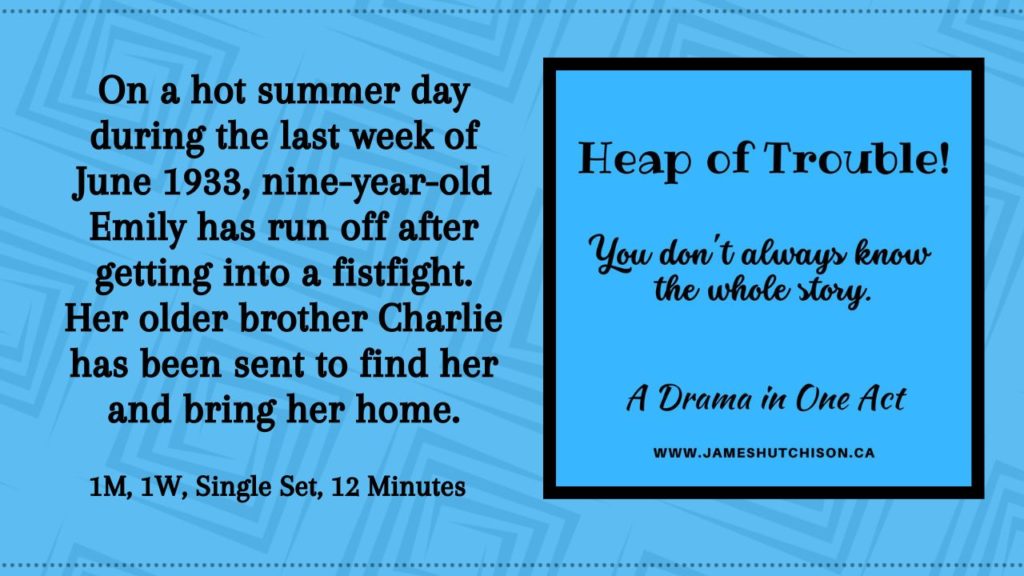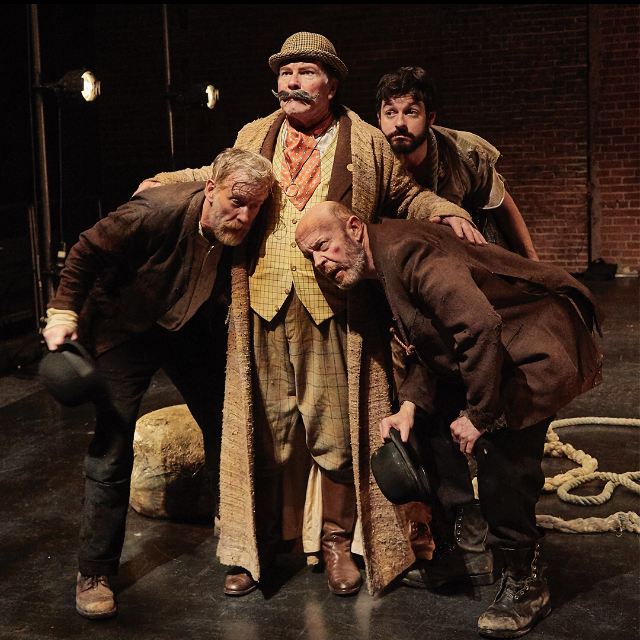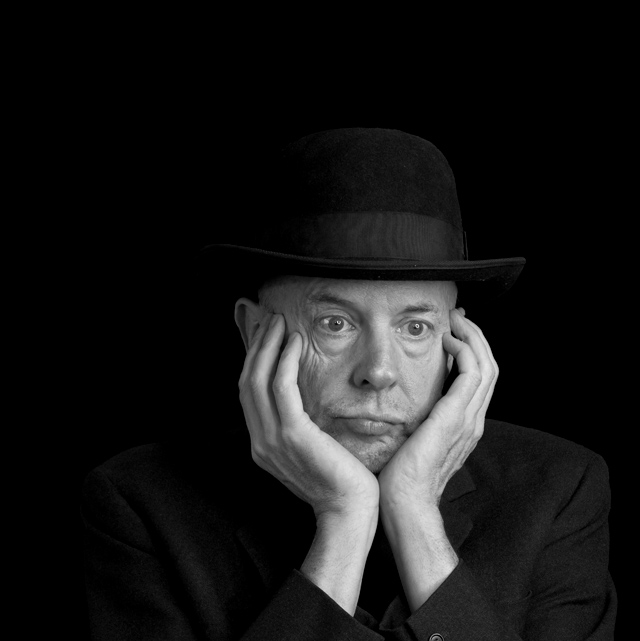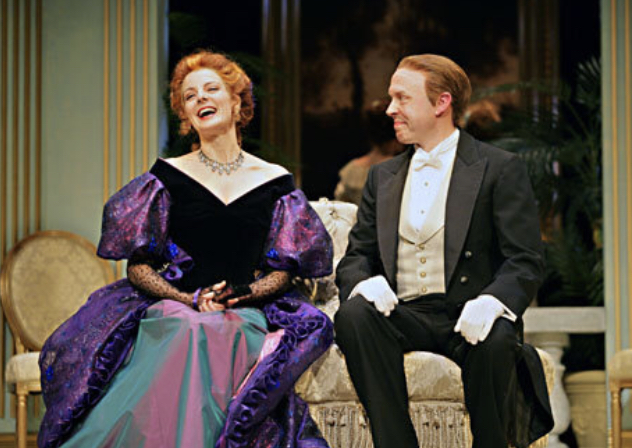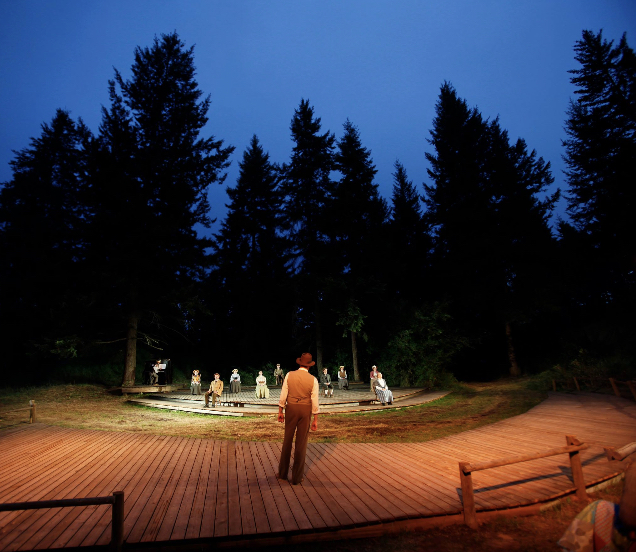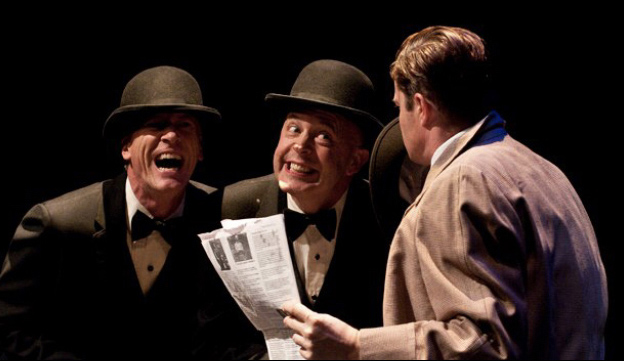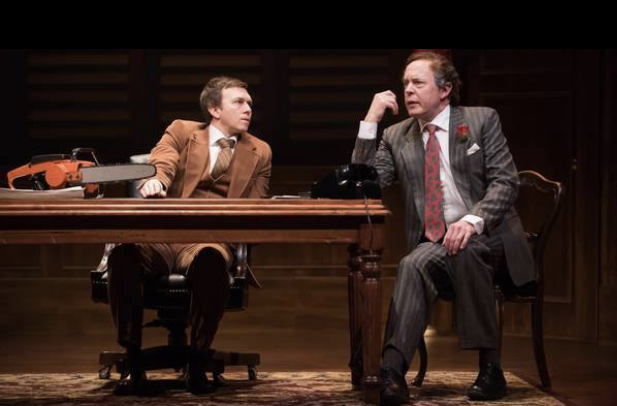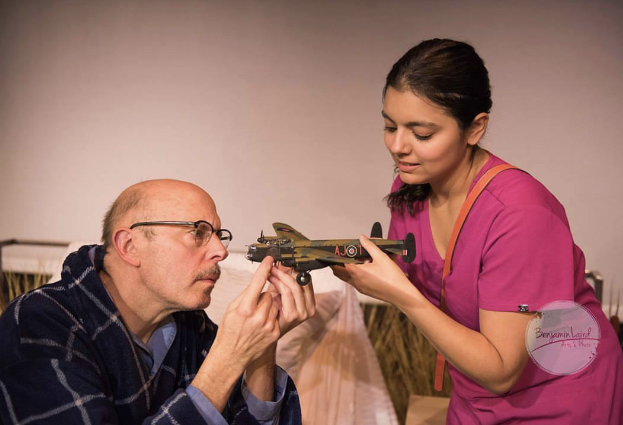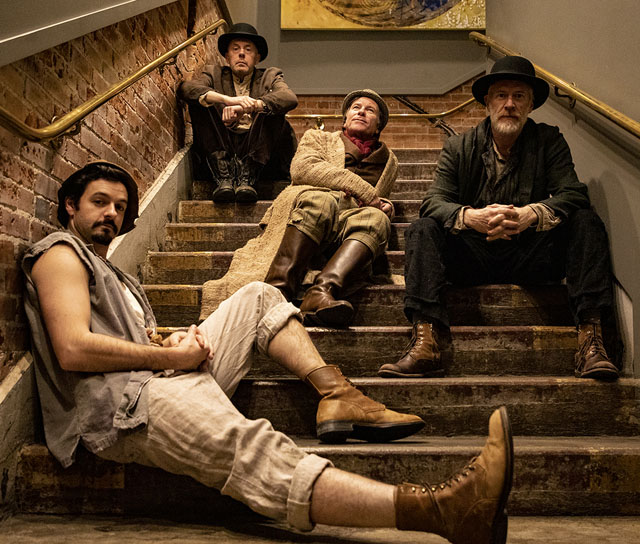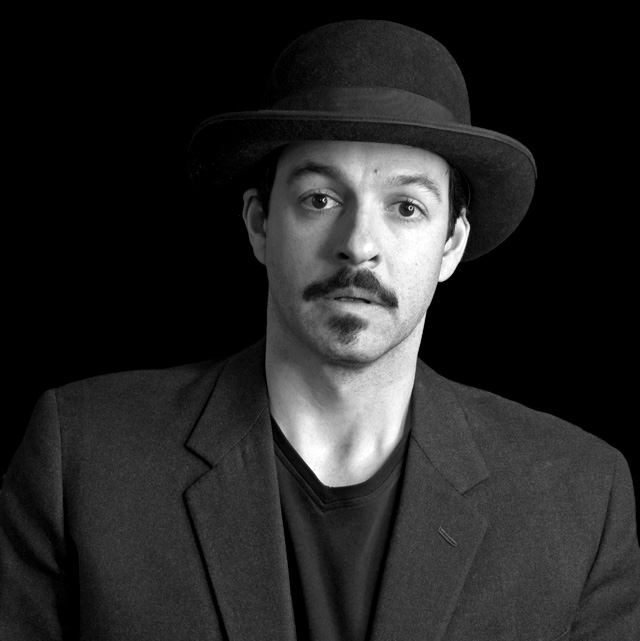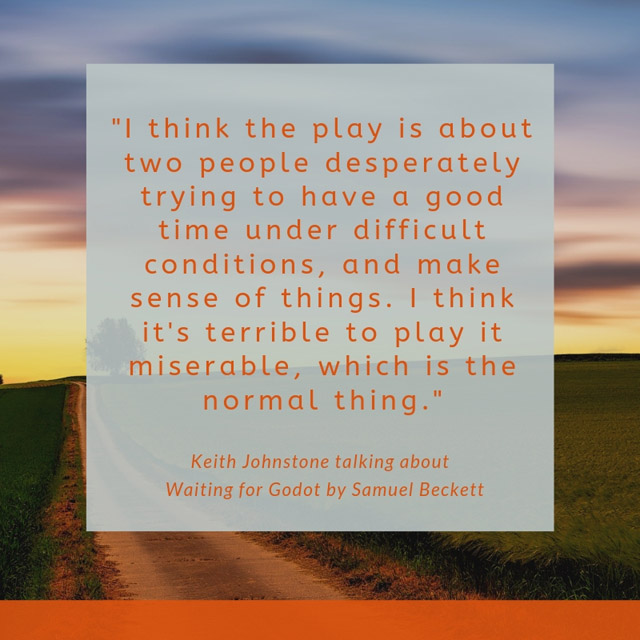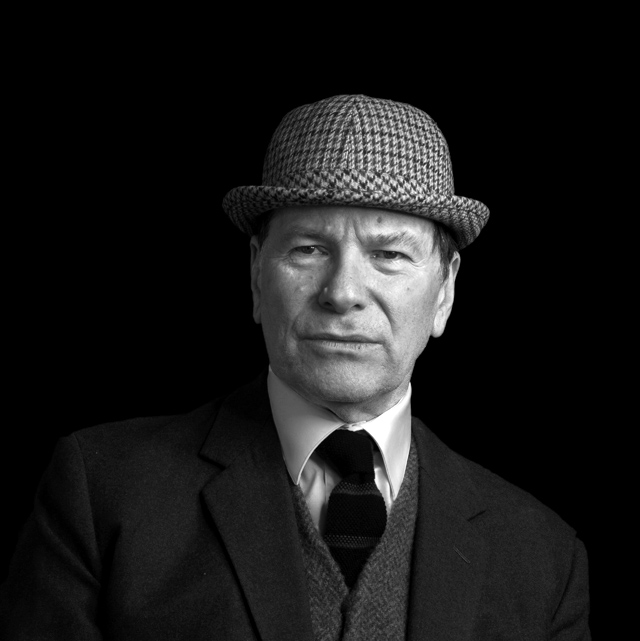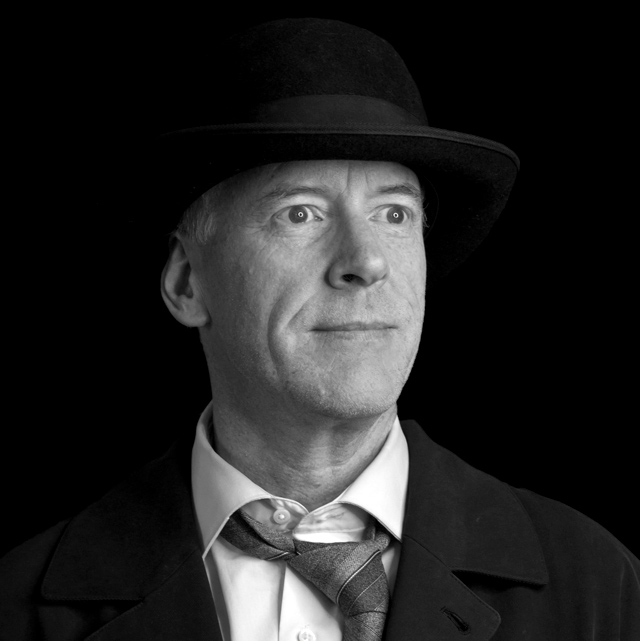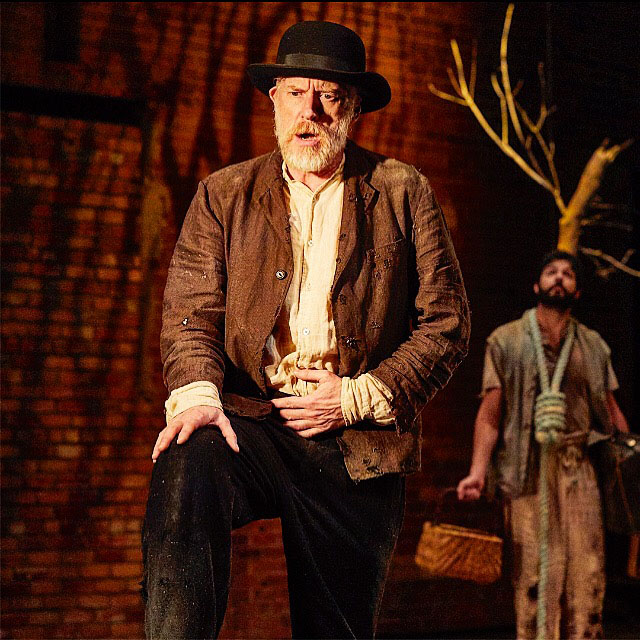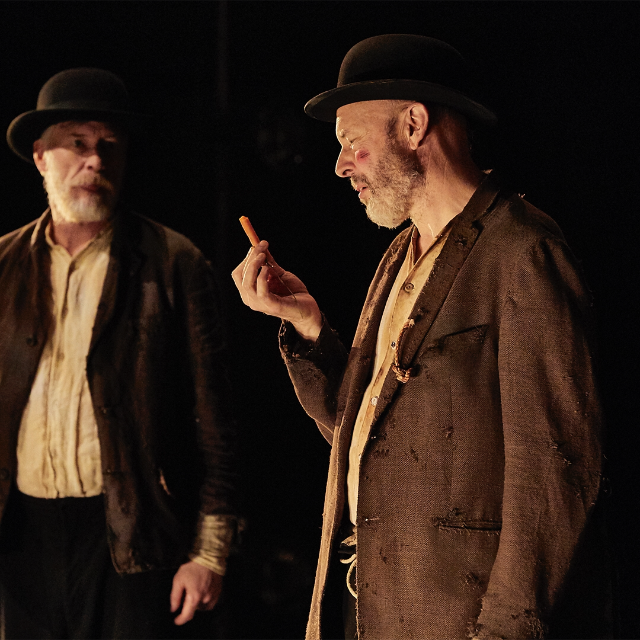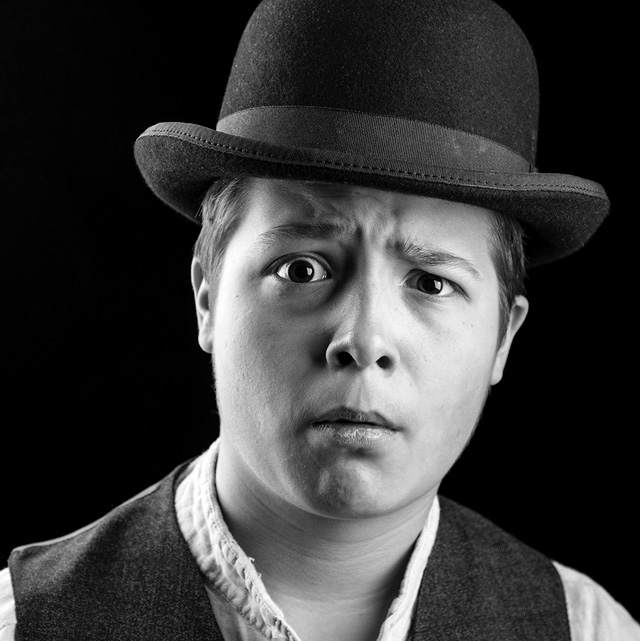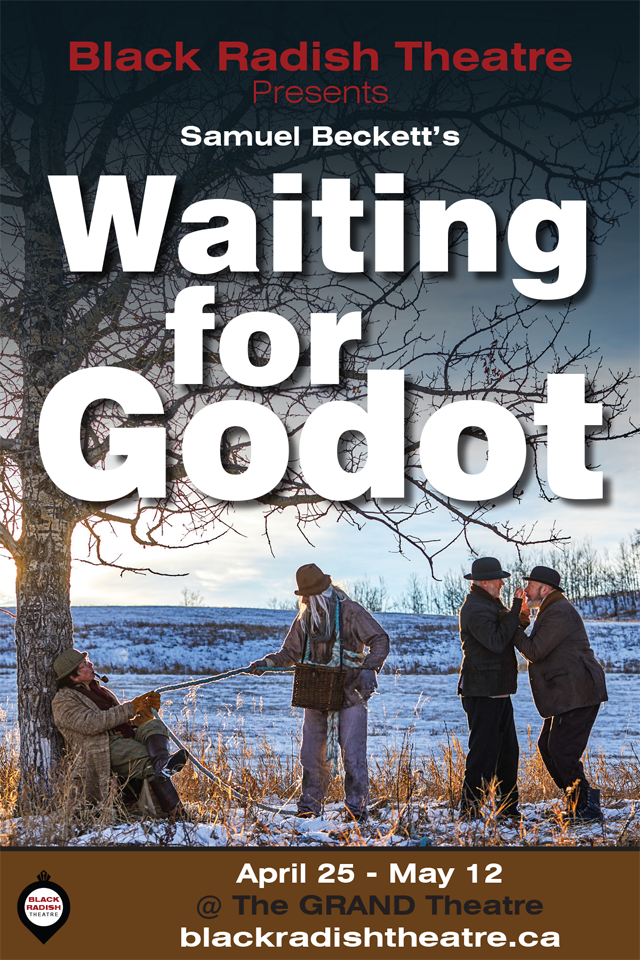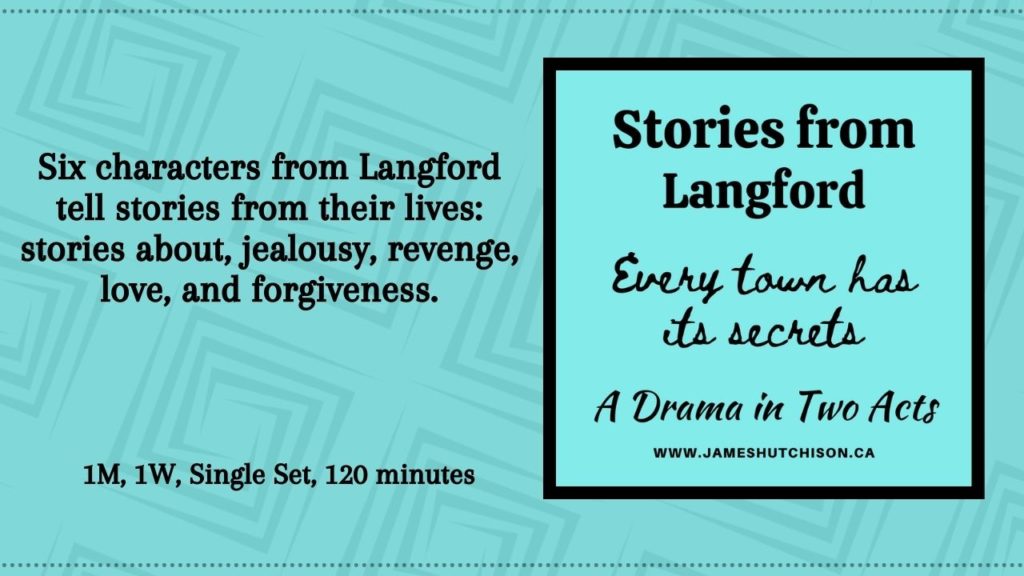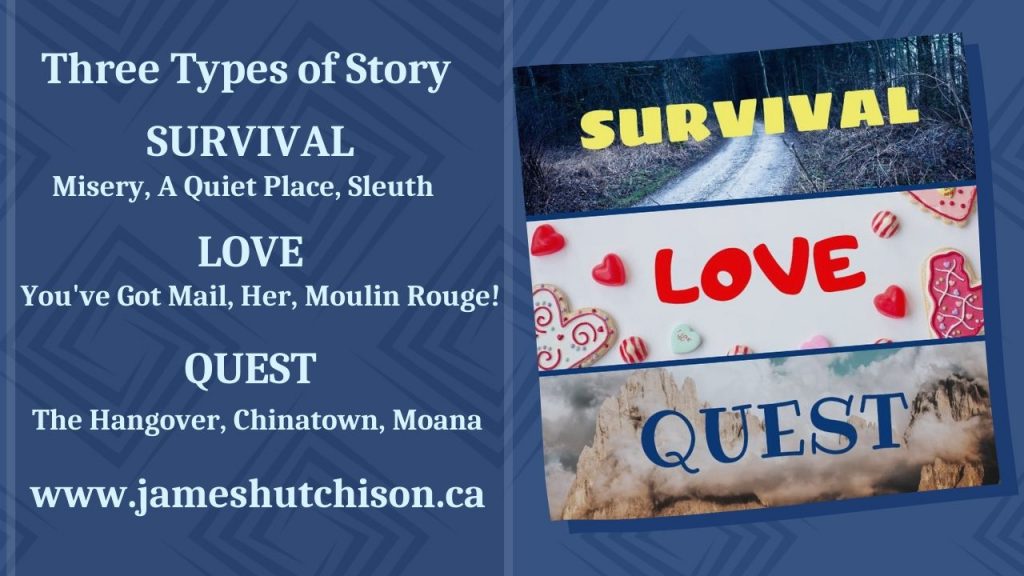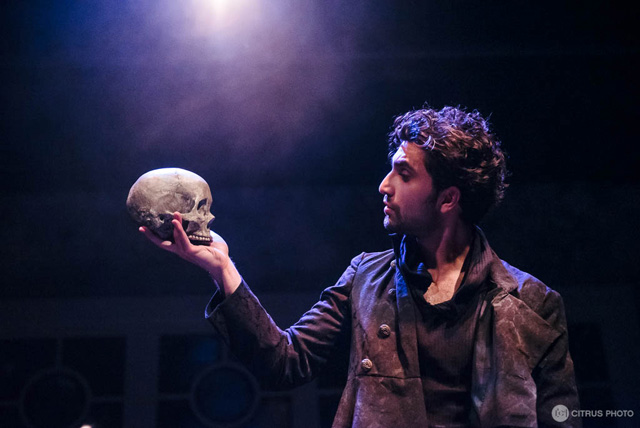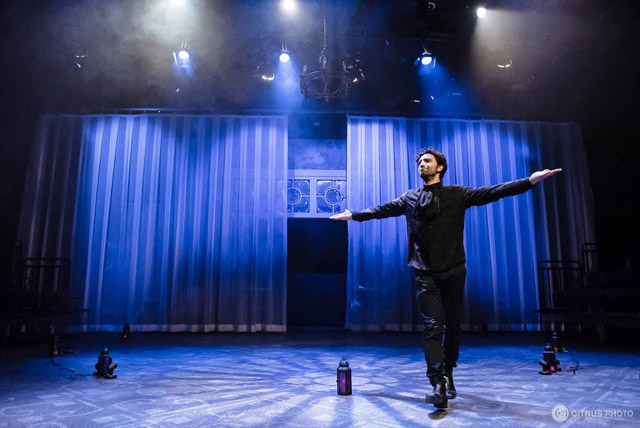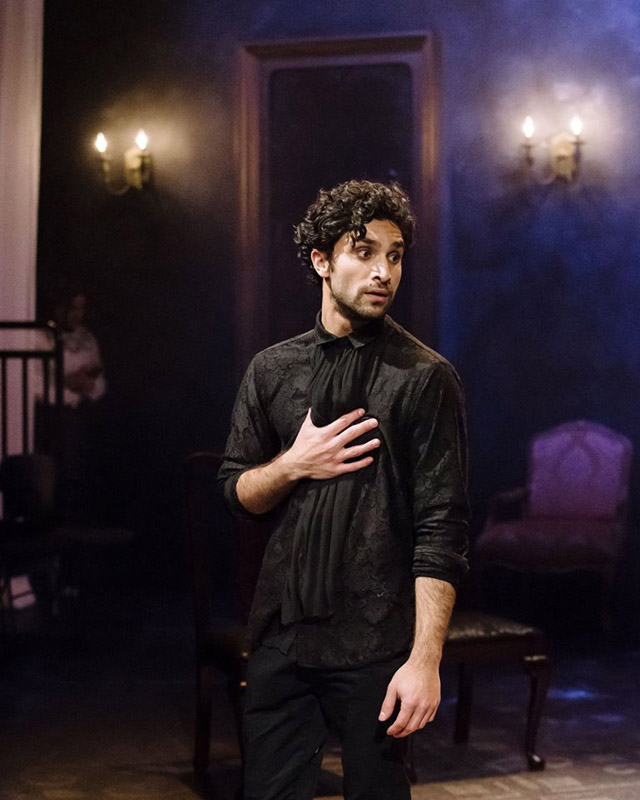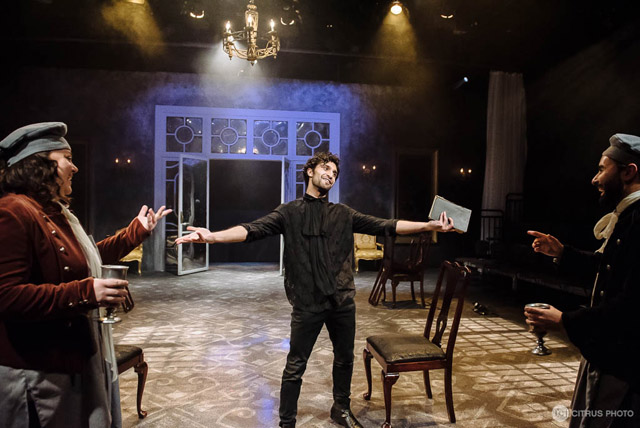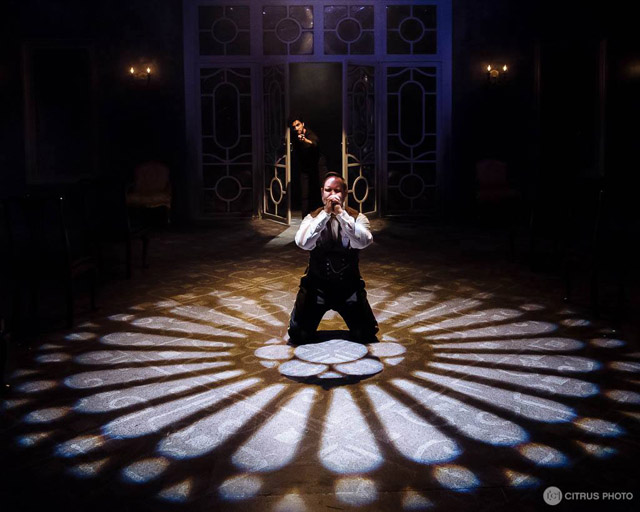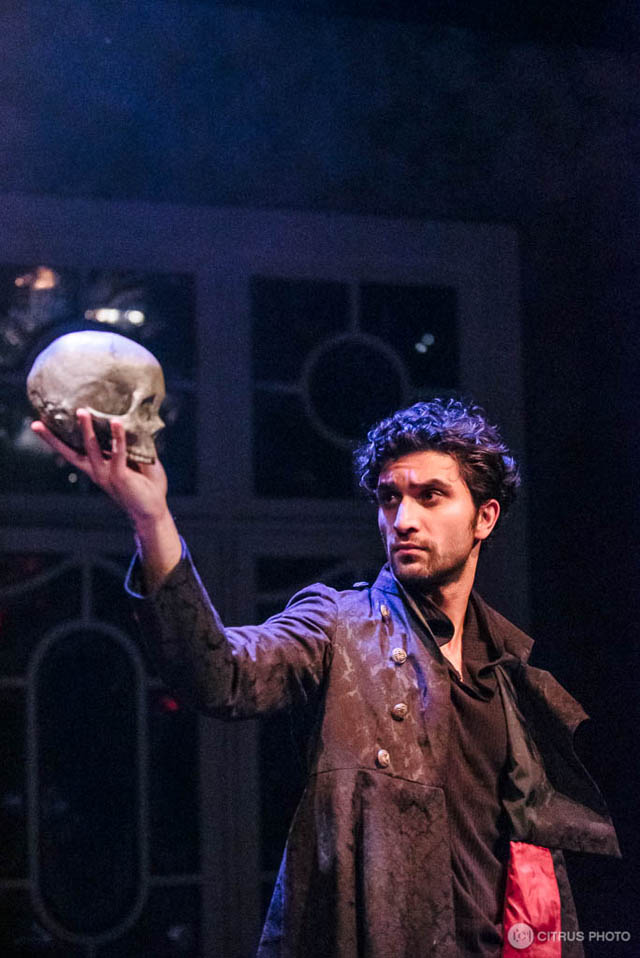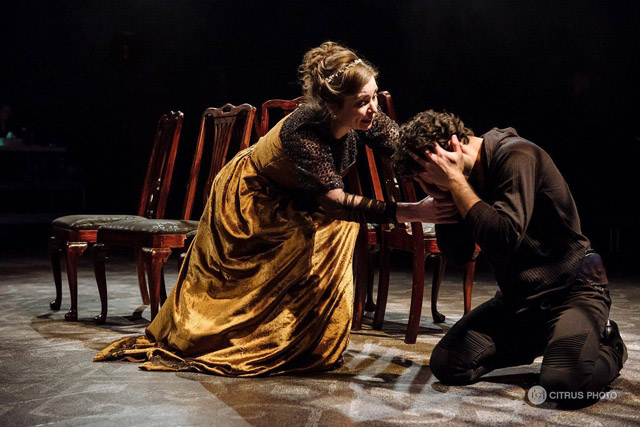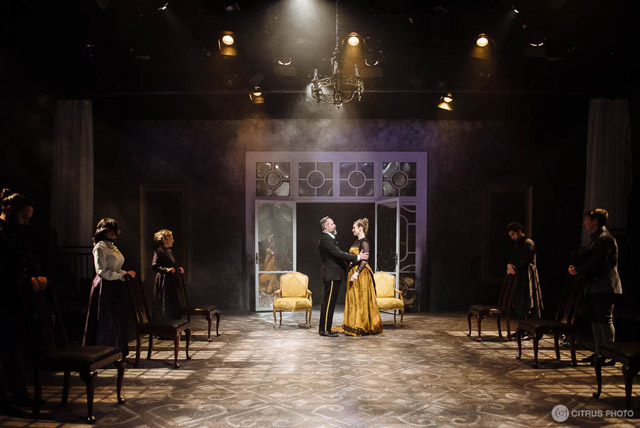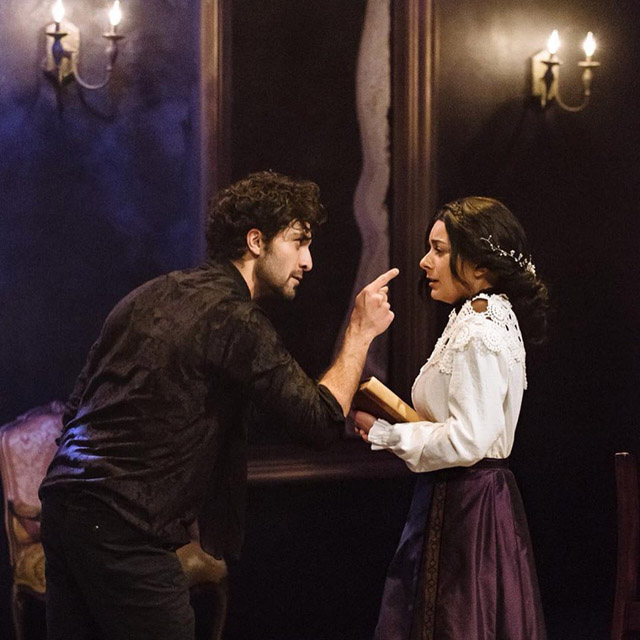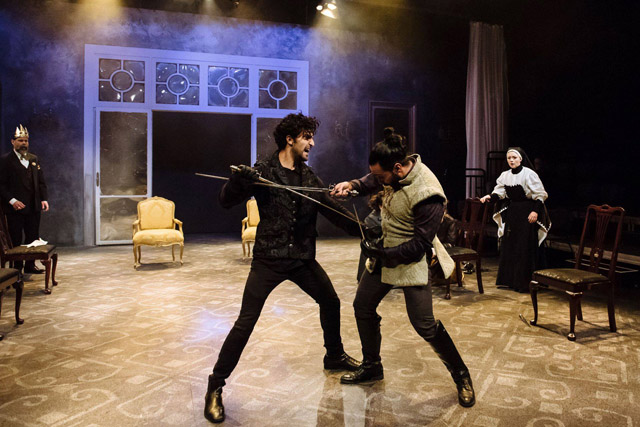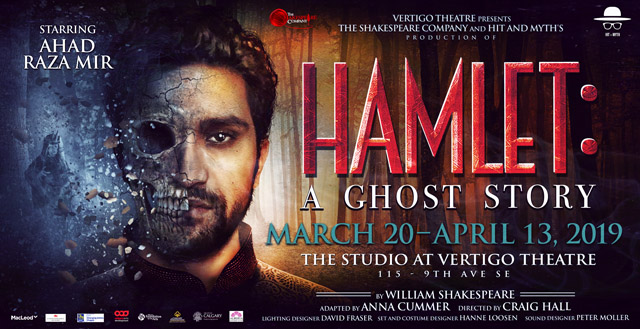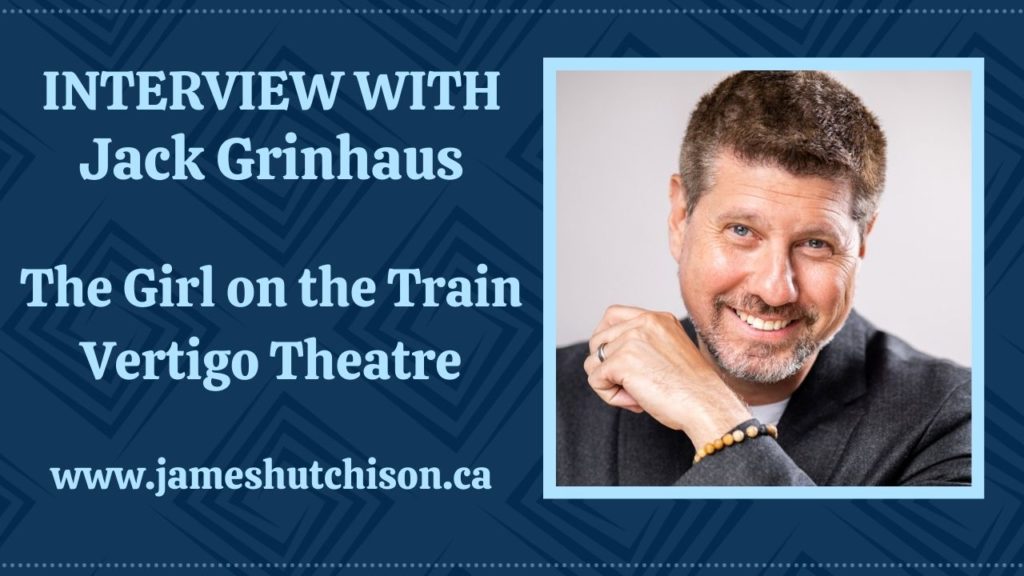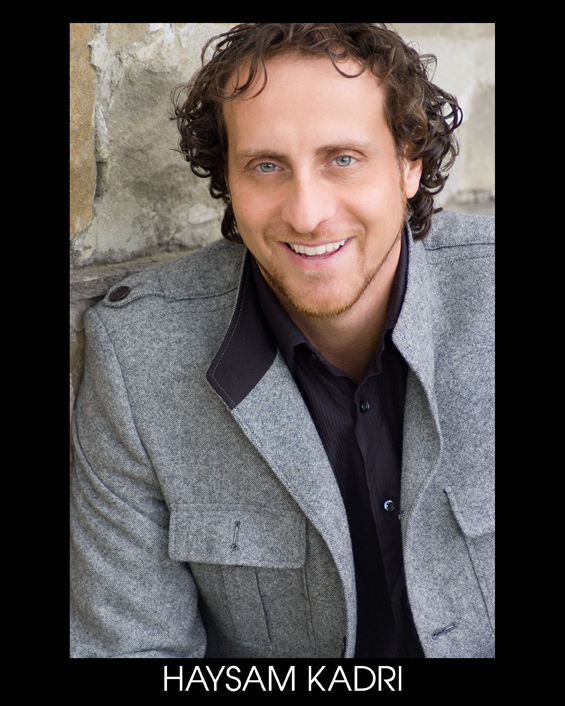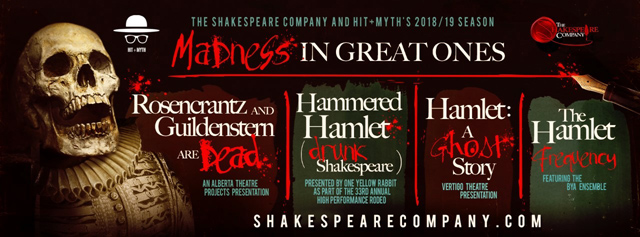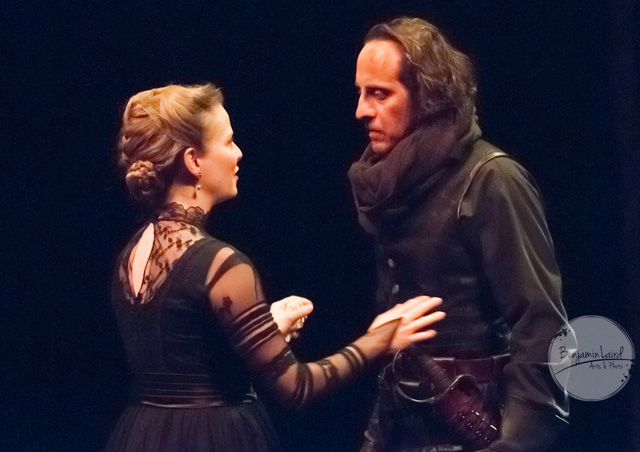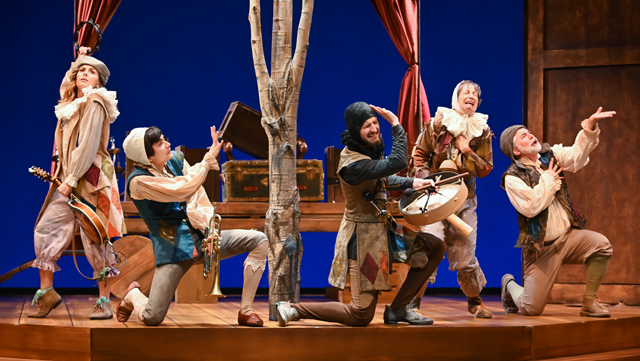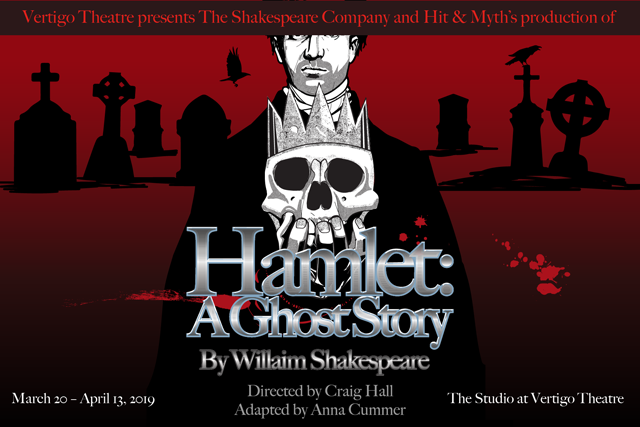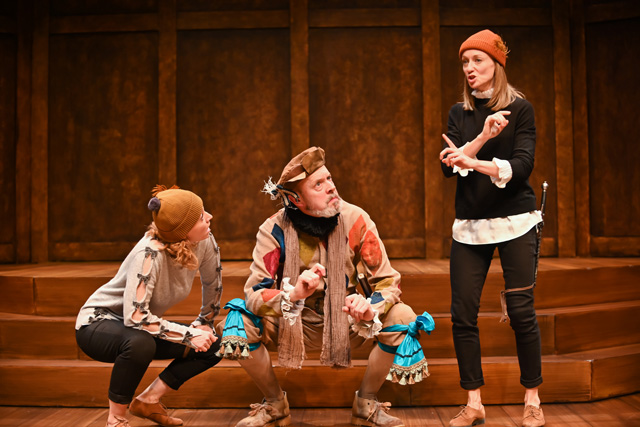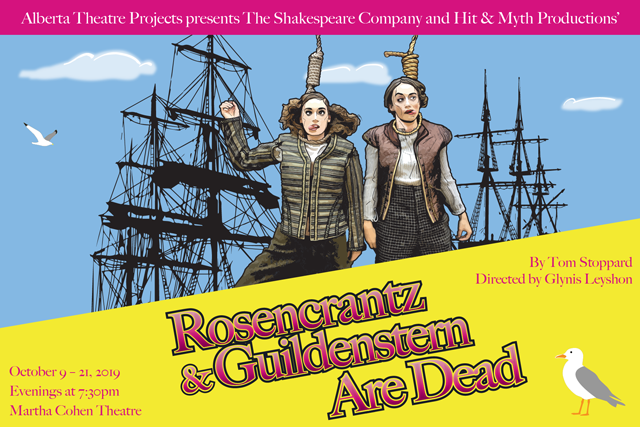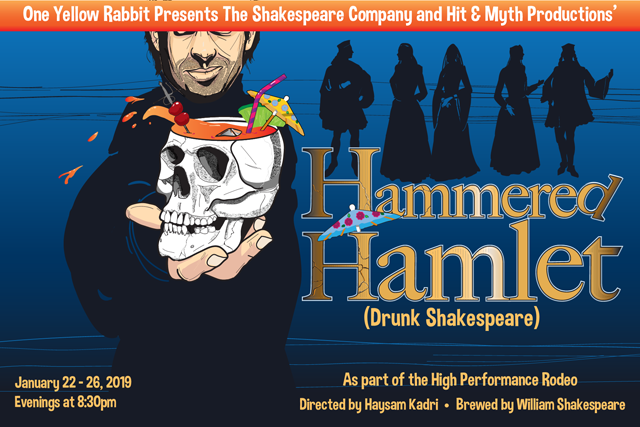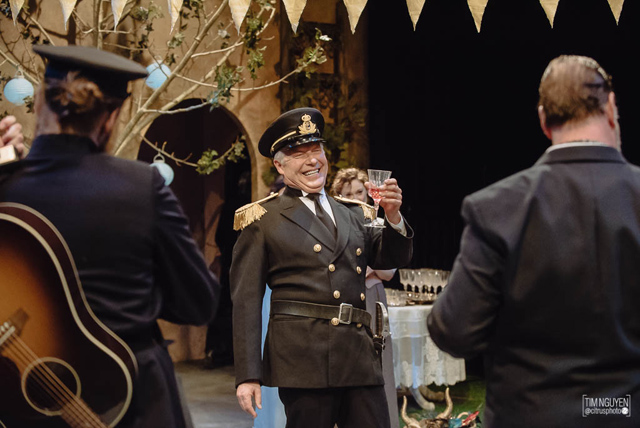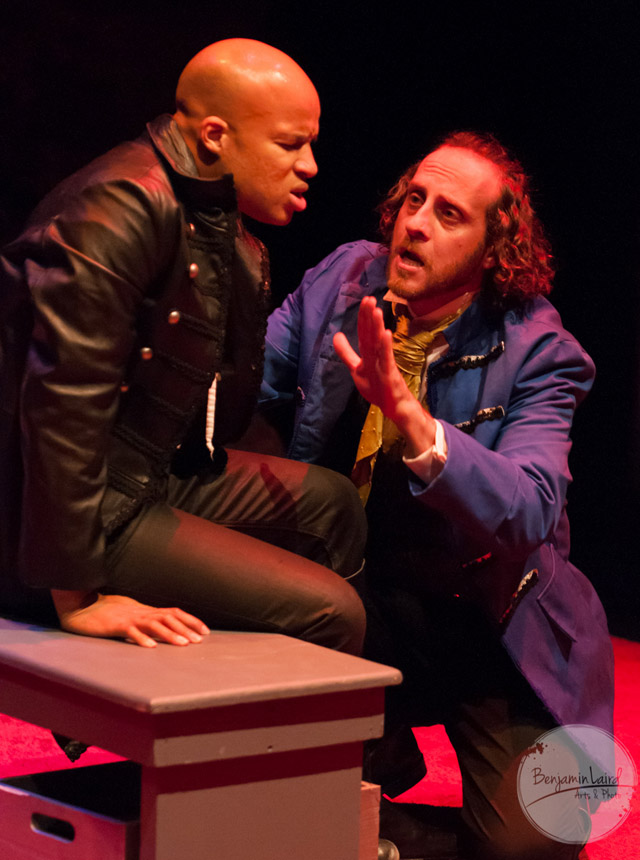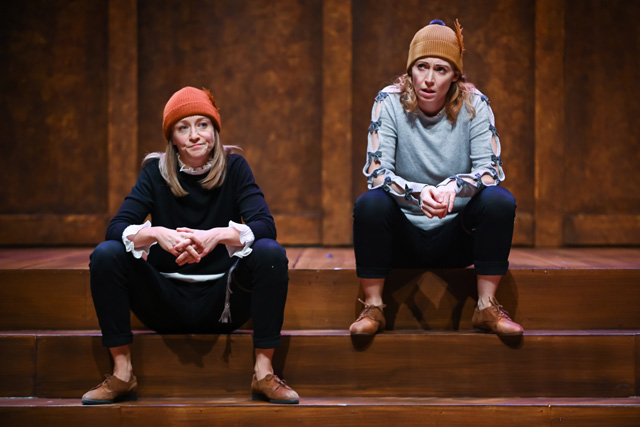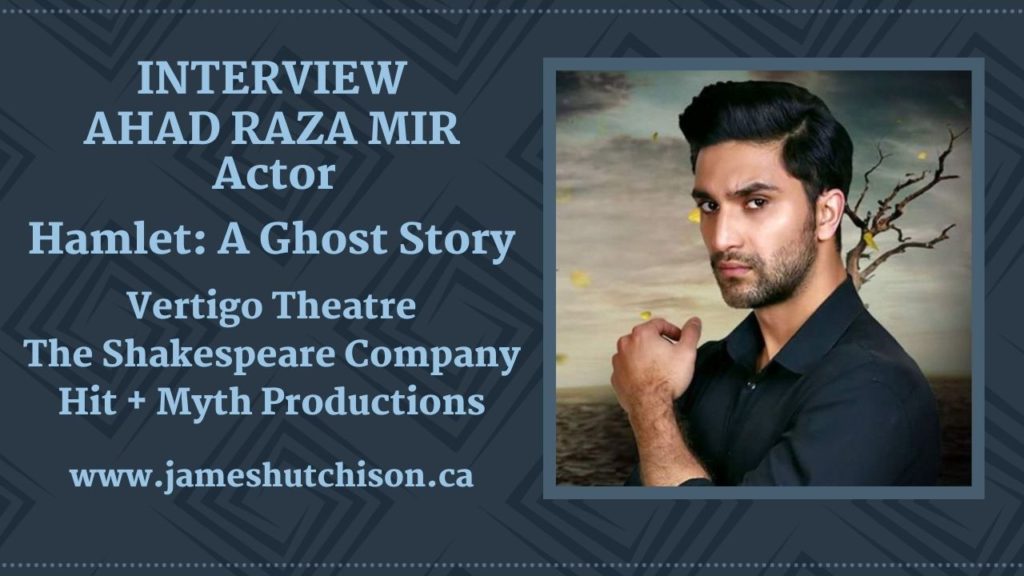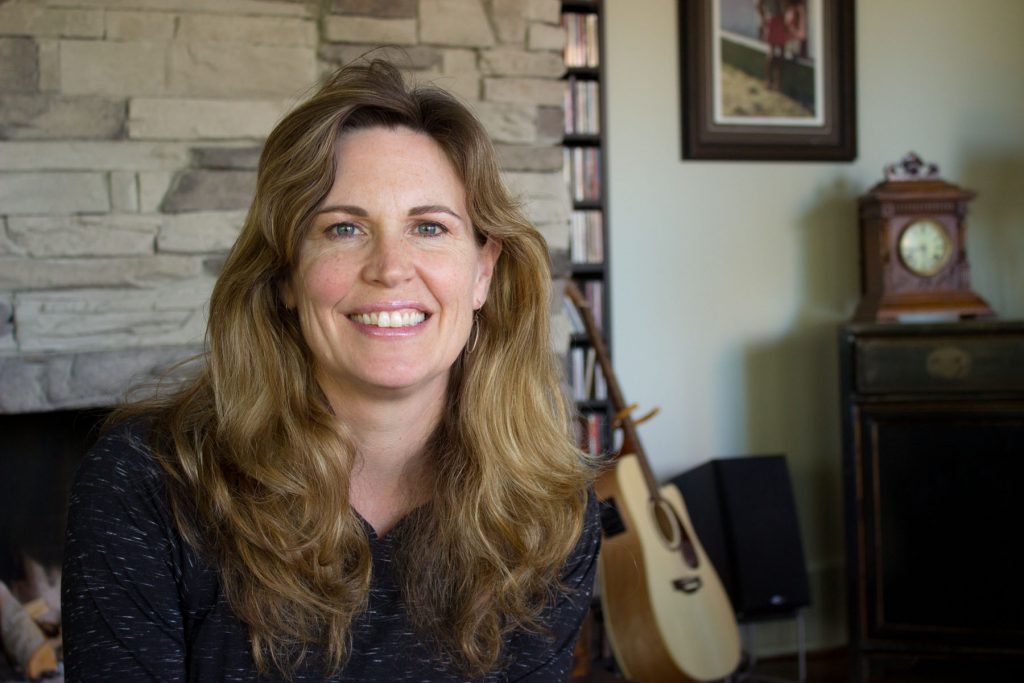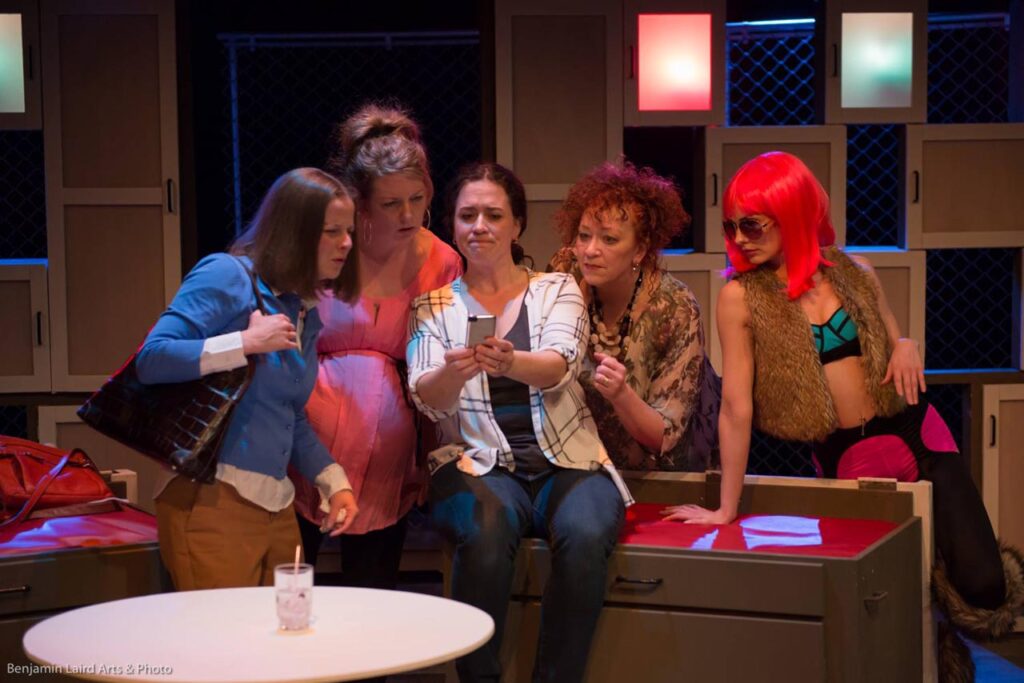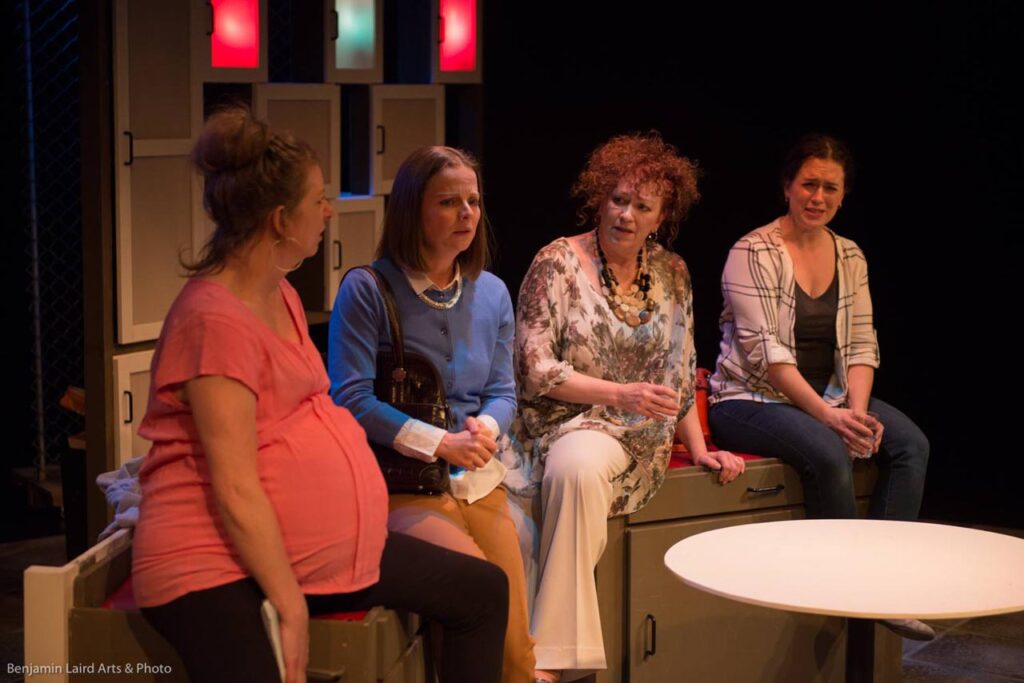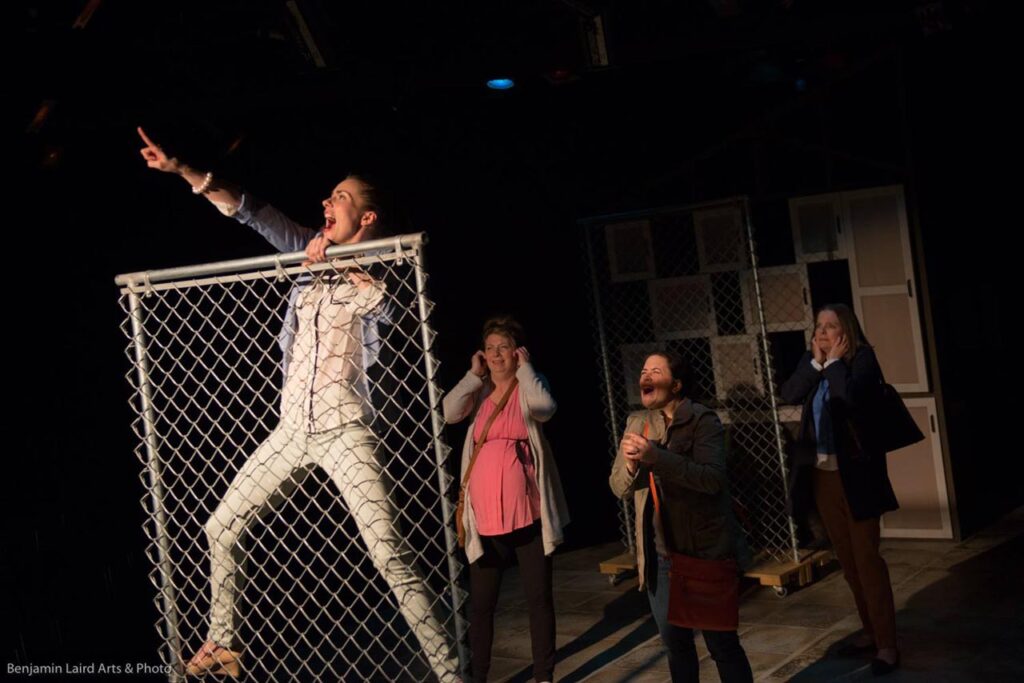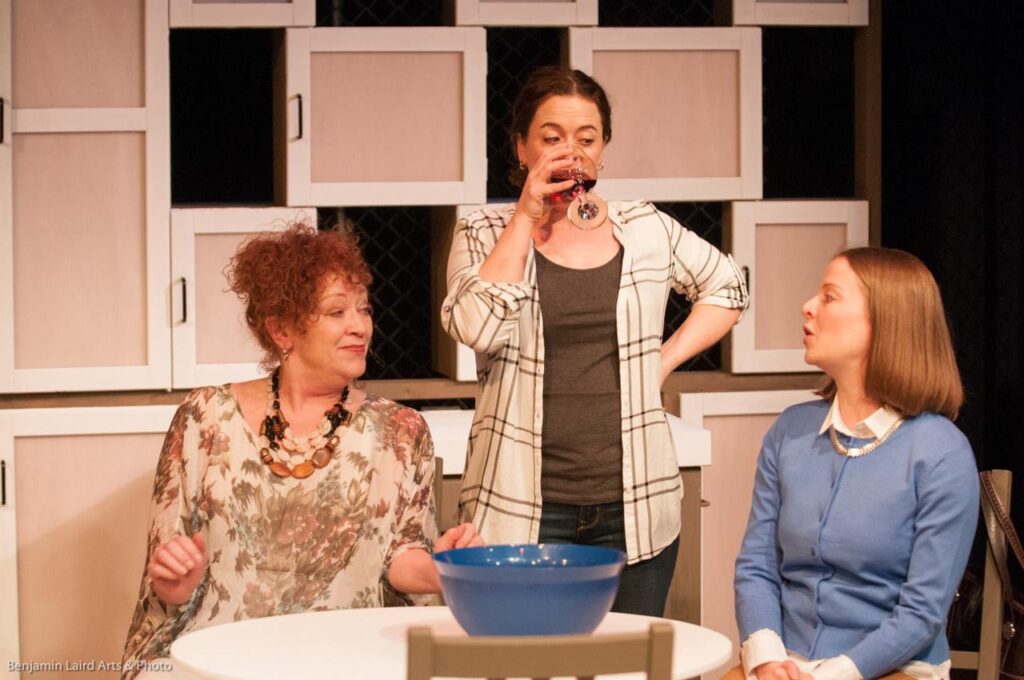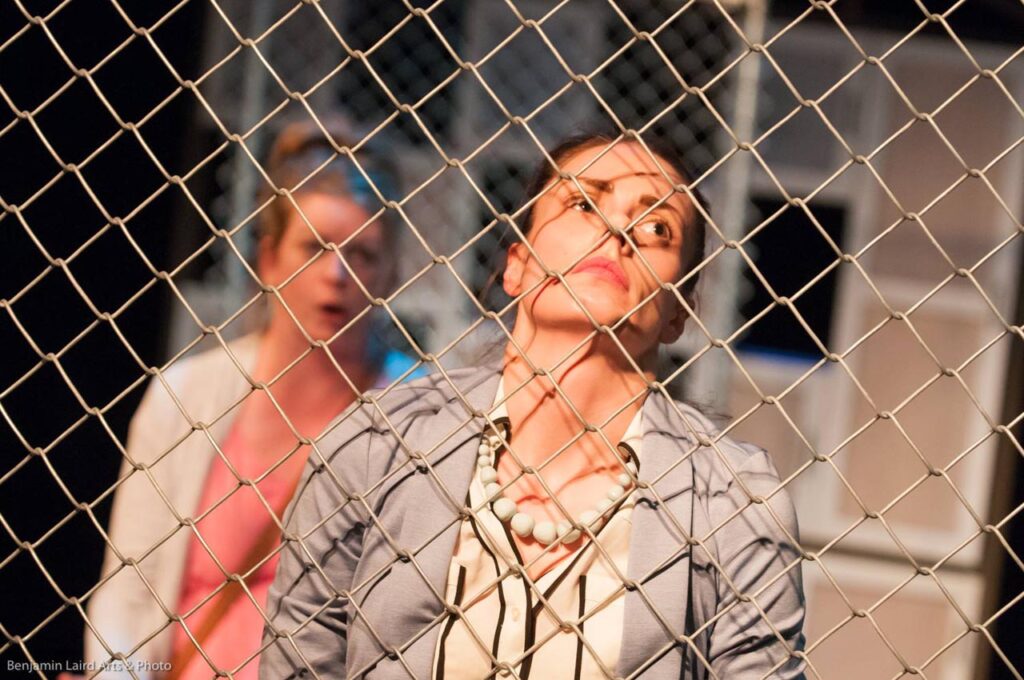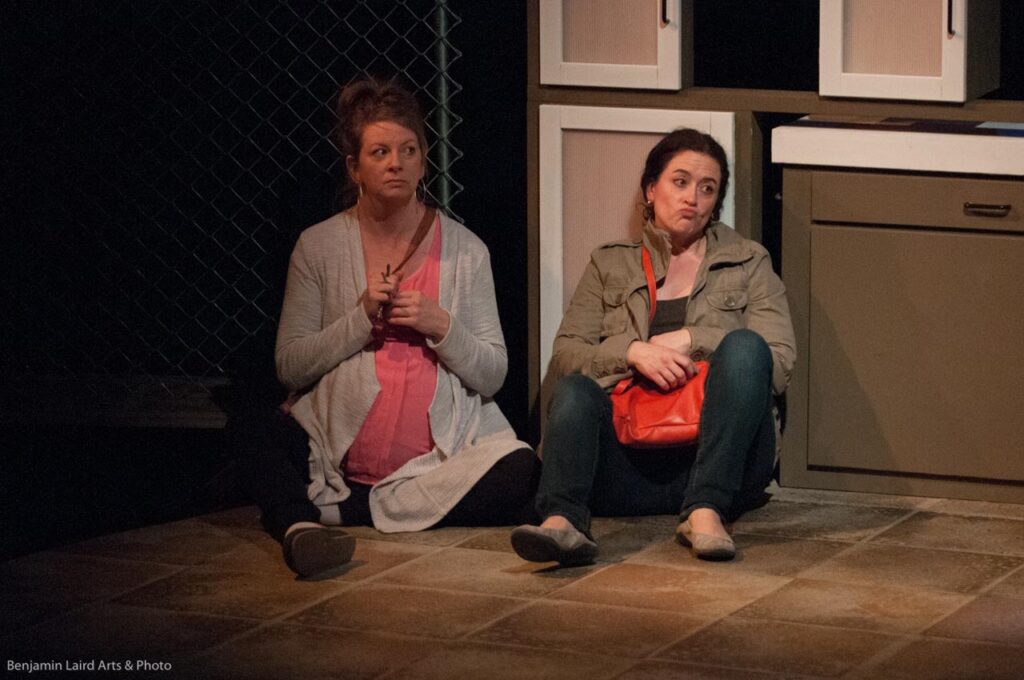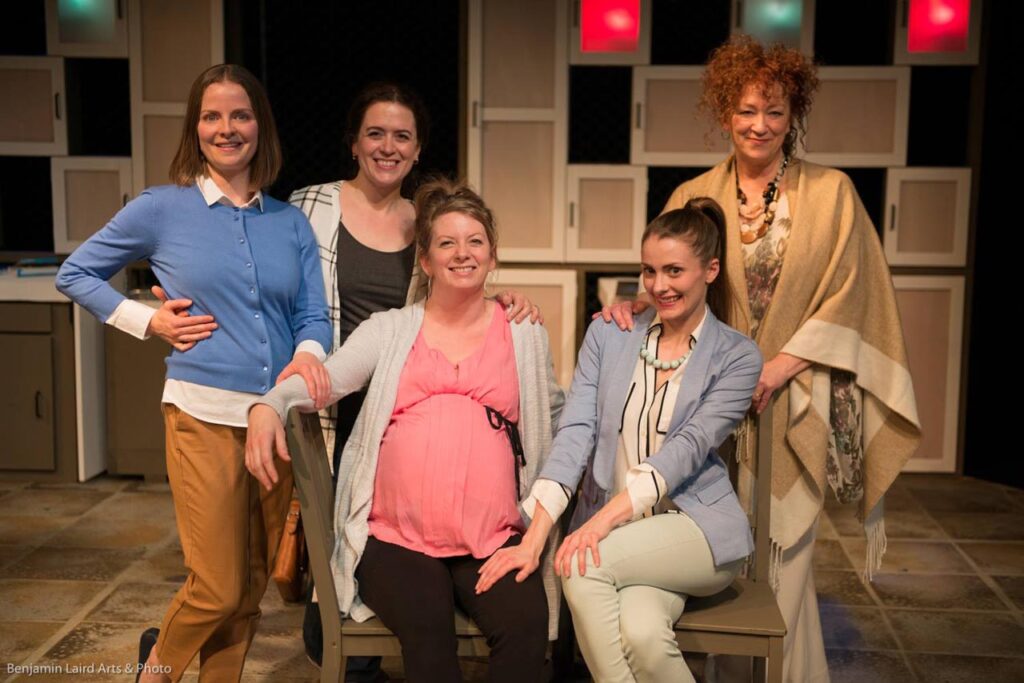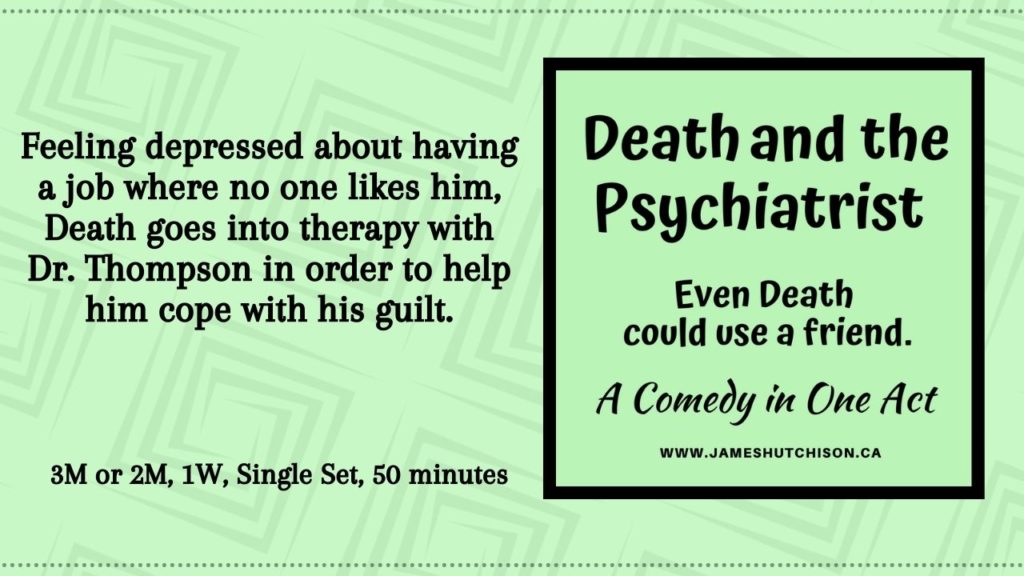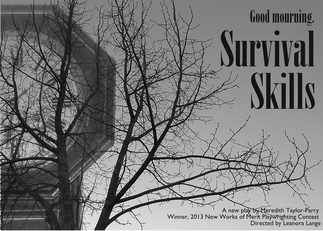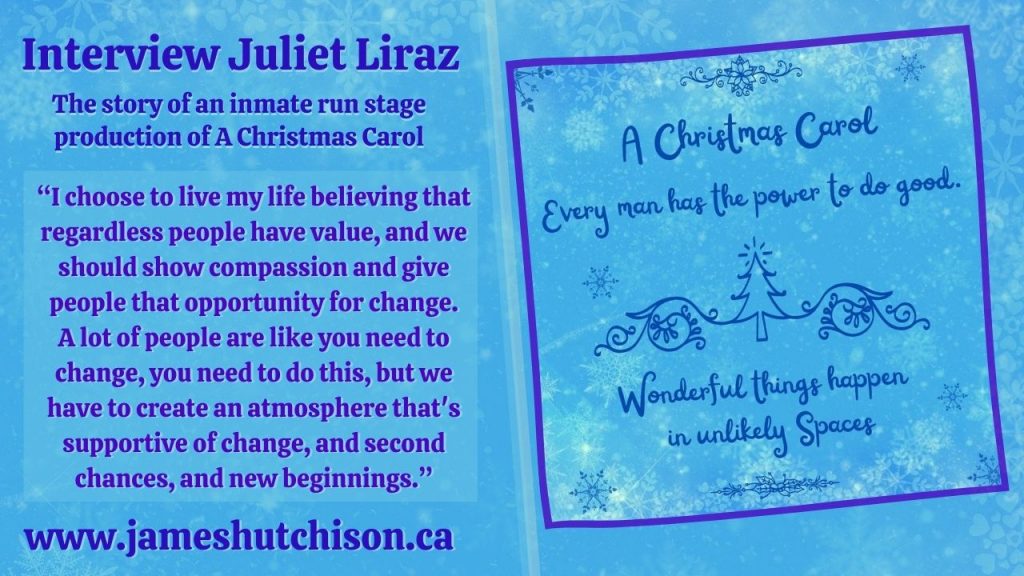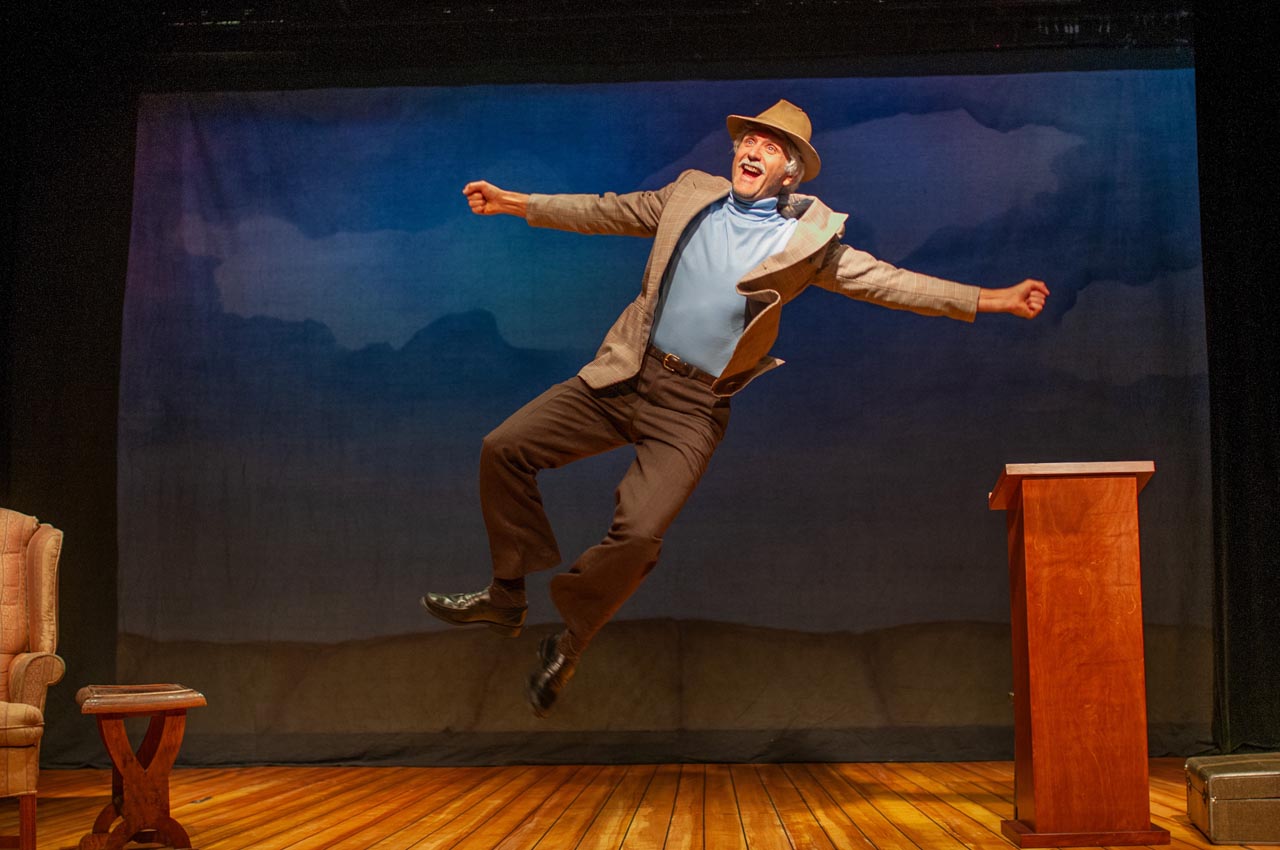
Magic Lies: An Evening with W.O. Mitchell is a joyful, fun, and feel-good night at the theatre all brought to life on the Rosebud Theatre’s Opera House stage in a brilliant performance by Nathan Schmidt.
Based on the works of W.O. Mitchell and penned by his son and daughter-in-law, Orm and Barbara Mitchell, the play weaves together an entertaining and insightful script that travels between Mitchell’s fiction and the story of his life.
Mitchell was a writer, performer, and teacher who is best known for his 1947 novel Who Has Seen the Wind. The novel beautifully captures small-town life and the world as seen through the eyes of a young Brian O’Connal growing up on the Saskatchewan prairie. Mitchell is also known for his Jake and the Kid stories which were popular radio plays during the 1950s. No stranger to the stage himself W.O. Mitchell was a storyteller who performed his one-man shows across Canada and penned several plays for the stage including The Kite, The Devil’s Instrument, and The Black Bonspiel of Wullie MacCrimmon.
I contacted Orm Mitchell to talk with him about his father’s work and the journey Magic Lies: An Evening with W.O. Mitchell took to reach the stage. You can read that interview by following the link above. I also spoke with Nathan Schmidt to talk with him about the production and the challenges of performing a one-man show.
JAMES HUTCHISON
What was your reaction when you first read the script and knew you were going to be playing W.O. Mitchell?
NATHAN SCHMIDT
I’ve done a couple of W.O. Mitchell shows. I’ve been in Jake and the Kid, and I’ve done The Kite twice, so lots about the script felt familiar, and I had experienced W.O.’s writing. So, I knew that he was funny, but the scarier thing was I thought, “Oh, man, I’ve got to play this real person who people know.” Whereas Daddy Sherry or Jake – those are characters. Those live in the imagination. It’s a different thing when somebody lives in the real world. And Morris Ertman our Artistic Director would say “When we open Magic Lies: An Evening with W.O. Mitchell all the family is going to come and watch the show.” And I was like, “Oh, my gosh. I’m going to have to play the father or the grandparent of these people in the audience.” So that was the most intimidating thing.
JAMES
Even a one-man show needs a director. For this show, it was Karen Johnson-Diamond. How did the two of you work on the play? What was that process like?
NATHAN
As an actor, Karen has done a number of W.O. Mitchell plays. I think she had been in Who Has Seen the Wind and Jake the Kid and she had a love of W.O. Mitchell as well. So, she came in with a lot of love for the stories and a lot of knowledge about W.O. Mitchell. But she’s also just a wonderfully comedic actor and performer, and so her sense of comedy and her sense of how this thing would play was really just spot on. And all of the direction that she offered to me was really helpful to clarify the joke and to clarify how the show moves forward.
What she really loved about the structure of the play is how it follows him through his life from like six to seven when he loses his father – to ten to eleven – to high school – all the way through to Daddy Sherry and misses a bit of the middle, because as W.O. Mitchell says in the story – he’s kind of focused on the first part of life and the end part of life. Those are the concentrated bits that it seemed his imagination was drawn to.
So, we would do a lot of work with linking. Linking how this story moved to this story and then to this story. And W.O Mitchell had a way of making it feel like it was all sort of off the cuff, but in the end, it was all very planned, and he was coming back to stuff he’d set up earlier and he had really worked out how the punchlines worked and how the ideas and stories came around. So, we did a lot of work like that to try and get into the head of the writer and the storyteller. It was a great process. She was wonderful.
JAMES
This is your 50th performance on the Rosebud stage and so I’m wondering when you look back on all the parts you’ve played do some of those characters have a lasting influence on you in any way?
NATHAN
Yeah, there’s a couple that really stick – that I learned a lot about myself from and sometimes that’s uncomfortable. I was in Doubt by John Patrick Shanley and that was a really uncomfortable play for me to be in. It taught me a lot about who I am when I’m helpless and so those things kind of stick. The character teaches you something about who you really are because your instincts as a person are either in conflict with the character or line up with the character in ways that are surprising. That was a big one. I did a Cormac McCarthy play called The Sunset Limited and that was also another hard one.
As W.O. Mitchell says, those characters marked me. And I think the thing I love most is the relationship that characters create with the audience. One of my favourite things I ever got to do was The Drawer Boy by Michael Healey. I was playing one of the farmers. In The Drawer Boy, this young kid comes to hang out at the farm and find out about these two old guys. It was an older character, and I was younger, and I was really worried because it didn’t feel real. I didn’t feel in it, and I was really up in my head about it and nervous, you know, that I was a fraud or I was going to fail, and then one of the things that actually cinched me into it was – I don’t remember how it came about – but maybe it was offered by Morris and he said, “Here’s a toothpick. Just chew on the toothpick for the whole show.”
And so, I would have these toothpicks in the show, and I just chewed on this toothpick the whole time, and it helped me feel like that cranky grumpy guy in that story. Well, you know, a bit later – after the run, I got a little blue index card in the mail and on it was glued a toothpick, and on the backside, this person had written, “We attended the show and your Morgan was like seeing my grandfather alive again, and he passed away in 80 whatever.” She was so clear that she had an experience of seeing her grandpa that day, and I was able to offer her unbeknownst to me an experience like that. And so, you know that play holds a special place for me too because of that story. It’s quite a lovely play.
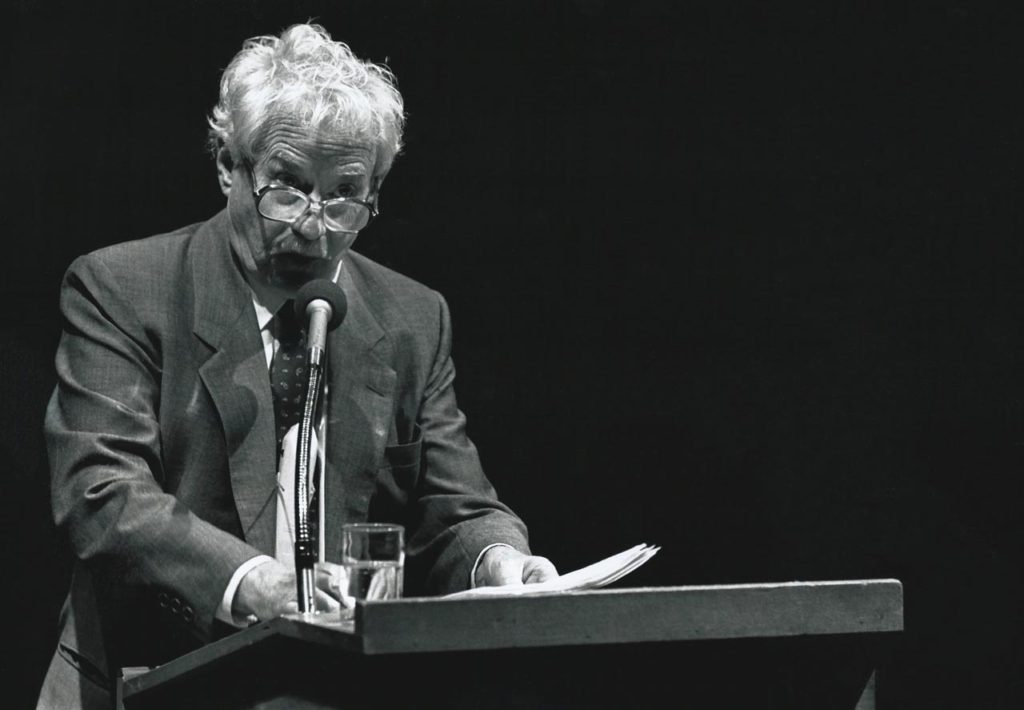
JAMES
W.O. Mitchell perfected the technique of appearing not to be performing. To be spontaneous and to appear as if he was telling the story for the first time. So, he’d draw his audience in through deliberate mistakes or confusion, he’d say, “Oh, did I tell you? Or I forgot to mention.” And in your performance, you totally capture that sense of spontaneous and unrehearsed storytelling. So much so that my son heard a couple of ladies leaving the theatre and they enjoyed the show, but they remarked that they were surprised that you seemed to lose your place and had to go back. Which means to them it was completely natural. So, to me you’re one of those actors who really achieves a feeling of reality in your performance no matter what part you’re playing. That’s a long speil just to ask, how do you do that?
NATHAN
Morris said this the other day and I think it’s true. I think when we get curious about people then we kind of fall in love with them. And I think it’s true of the characters we play, and I think in the rehearsal there is something about just falling in love with the reality of whoever they are and whatever drives them. You’ve heard it said that one of the actor’s adages is don’t judge the character even if you’re a villain. Villains are motivated by what they believe to be true or good or at least by what is in their best interests.
And I think the actor’s job overall – and W.O. Mitchell did this in spades too – is to collect people. To watch people and to observe what they do and why they do it without judgment and to allow them to steep into you and to become part of you and the energy of being them and how they participate in the world. It’s partly that and it’s partly just having fun. It’s just fun to try and make it as real as possible.
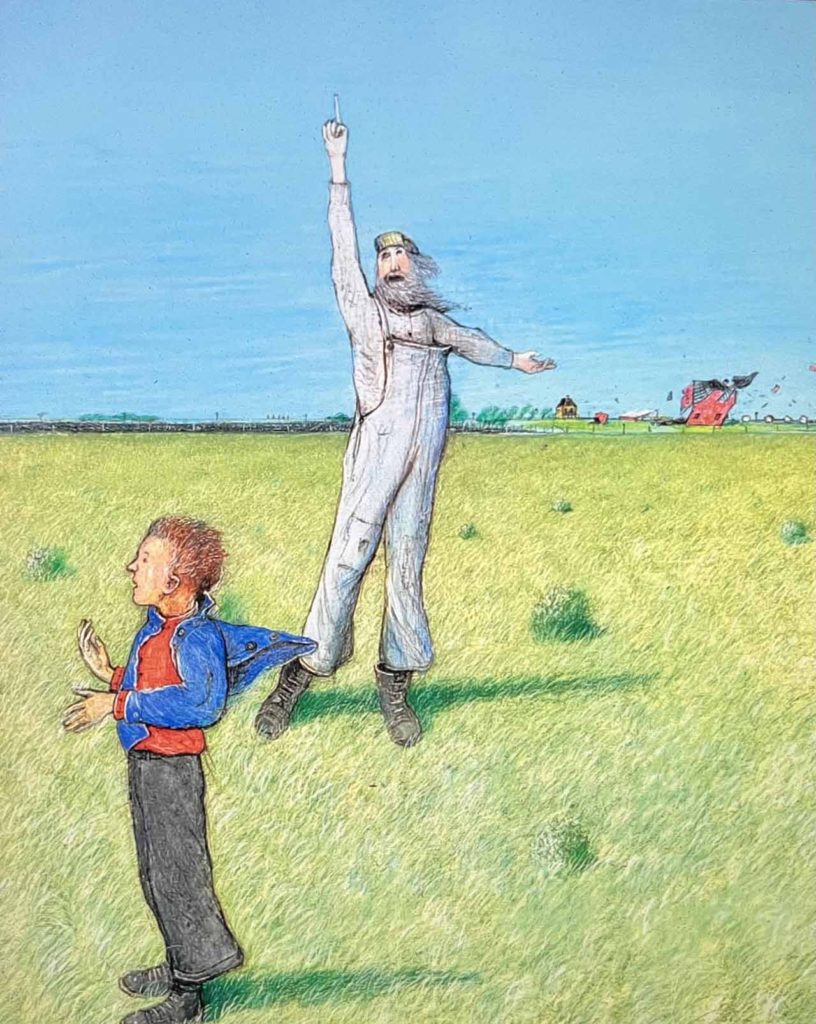
JAMES
You know, it’s interesting that you mentioned fun, and I think W.O. Mitchell is able to capture the feeling of childhood and play and imagination and curiosity. What are your thoughts about the child within you in terms of that living in you as an actor?
NATHAN
I have three kids now and when I watch the four-year-old and two-year-old play for them every game is real. They just believe it. My little guy just thinks he’s the Flash. He thinks he’s the fastest thing going and so he’ll be like, “Watch this Dad.” And he will just run through and he’s like, “You didn’t even see me, did you.” And I remember as a kid wearing my North Star Velcro runners and those are the fastest shoes, and I can run so fast in my North Star shoes because they’ve got shooting stars on them and that makes my feet fast. And I believed it to be true.
Our adult logic brains know it’s not true, but it could be in your imagination. And the audience does the same thing. They all know they’re not seeing W.O. Mitchell. Karen said, “Nobody’s coming to see the actual W.O. Mitchell. They’re coming to have an experience of W.O. Mitchell and if we deliver it in a way that doesn’t give them any reason to doubt too much – then the audience will let their imagination see me as him.” And so, you know, I think our imagination is a remarkable and amazing gift, and I think as creatives we may access it a little bit more at times, but it’s there for everyone. They just have to access it.
JAMES
This is storytelling at its simplest and best. One actor. Minimal set. What is it like for you as a performer doing a one-man show? How do you create that connection with your audience?
NATHAN
I’ve done a number of one-person shows now and it gets to be a lonely room as opposed to having one or two other people or a group of actors to hang out with. It can be lonely in that way, but the audience really becomes the best friend of the show. And especially in something like this where it’s such a direct address. The whole point of the show is the relationship of the storyteller to the audience. At the end of the play, W.O. says that this is the thing – the energy of a live audience responding to a story – that’s where it’s at.
And for me, that is where it’s at. I love that relationship. I’m always curious about it and excited about it. Sometimes puzzled by it, you know, sometimes it lands really well, and people just explode with laughter and sometimes they don’t, and you can’t put together all of why that is, but people get to be who they are and so it’s a really lovely sort of bond that I’ve come to love about performing. And that’s the amazing thing about storytelling in theatre. And at the end of the play he says,
“You know…the energy of death lies behind everything I’ve written—it’s death and solitude that justify story telling. Telling stories draws us human aliens together in the mortal family, uniting us against the heart of darkness, defending us against the terror of being human. Writing’s a lonely act—like playing a dart game with the lights out. You have no idea whether your darts are coming anywhere near the bull’s-eye. But this (open handed gesture to audience)…this dilutes the darkness, gives me what all stage performers love—that immediate thrust of a live audience responding to story magic. (Looking out to audience, grins). We were flying tonight!”
